#E Lectern
Explore tagged Tumblr posts
Text
WIP MONDAY
Likewise gently bullied by @pseudospaceship and last week was hella busy, hence the delay, but here's a look at what I'm cooking for Chapter 22 of I Heard People Are Dying to Get In Here (the soap opera).
Before delicious angst though, you all get a big heaping serving of working in a funeral home.

“Alright…” Rook muttered, taking a second to catch her breath and glance at her phone: Leon had texted her back. He was never up this early, but when Rook had called him at six-thirty in the morning, bordering on hysterics over a fight she’d had with her boyfriend whose greatest aspiration in life turned out to be signing on to become a brain in a jar, he played the role of the supportive best friend without complaint and listened to Rook rant and sniffle and whine — entirely free of judgement or unwarranted advice. When she told him she had to go to work he told her to text him any time, and she had taken him up on that.
‘You’re totally right, dude. He should have told you instead of letting you find out for yourself, but I dunno - maybe he was nervous? How does one organically bring such a topic up?’
Rook considered the message and slipped her free hand under her vest to scratch at an itchy spot on her chest that had been bugging her all morning.
‘Yeah, I guess, but like… literally anything would have been better than having this dumped on me.’
She hit send on the response and pocketed her phone, crossing over to the lectern in the corner to check Mrs. Silverbough’s paperwork. There was a jewelry envelope on top of the identification form which indicated a silver necklace with white stones, and a pair of yellow earrings with purple stones were within to be placed on the woman prior to her identification.
The box was ticked and initialed by a family member that said ���CREMATE’ so Rook knew they’d already discussed leaving the jewelry during arrangements, but made a mental note to confirm verbally anyway.
Donning a pair of gloves, she shook the jewelry out of the envelope and into her palm: gawdy old lady jewelry, heavy and inelegant. She knew it had meant something to the decedent when she was alive, but Rook found herself grateful in the moment for Emmrich’s taste in jewelry regardless.
She approached the casket again and spread the jewelry out on the closed half of the lid.
Carefully lifting the necklace, she unclasped it and turned to Mrs. Silverbough: she wasn’t terribly old — in her mid-70s if she recalled from the many Funeral Directors Statements of Death she signed during arrangements. Her face held the same waxy, somewhat bloated look that many boasted when they died; her skin just a little bit too yellow, fingers just slightly too pale. No cosmetics for this identification: just a dead lady, reposed in all of death's humble glory for her family to see. Not a morbid or nightmarish sight, but there was no denying that she was plainly a corpse.
She slipped the loose ends of the chain around the base of Mrs. Silverbough’s thick neck, and reached underneath to arrange them so that the pendant of the necklace — an aggressively stylized heart —rested naturally over her sternum. No need to struggle with fastening it: she’d learned long ago that necklaces were rarely clasped on decedents. The illusion that it was fastened sufficed, and as long as no trailing ends were visible, no one would know otherwise: the pillow and the weight of her neck would keep things in place.
She felt her phone buzz in her pocket again, and reached for an earring, plucking off the small back and setting it down before pausing to itch her shin with the tip of her shoe.
“Why am I so fucking itchy?” She grumbled softly, bringing the gold and amethyst earring to Mrs. Silverbough’s accessible left ear lobe, already dreading the impending task.
She knew how this conversation had gone during arrangements: ‘Mom loved her earrings: she has dozens of pairs — she didn’t go anywhere without a pair of earrings.’
Yes, well — I’m sure she didn’t… until she ended up in the hospital or a long-term care facility for long enough that the holes probably closed up, but hey — fuck it, right?
Shimmying back to the head end for a better angle, Rook leaned into the casket, nearly face-to-face with the woman inside as she began gently probing around the wrinkled earlobe with the post of the earring while simultaneously squinting to see if anything that looked like a piercing hole presented itself.
Trying to find a dead person’s earring-hole while practically upside down in a casket with blood rushing to her head was one of Rook’s least favourite things about this job. It’s not like they could help you, or turn their head — or do it themselves, which would make the entire process infinitely simpler. Oh no.
“Come on… where are you…?”
The post snagged on a slight divot and Rook thought she was home free until she introduced slightly pressure and was rewarded with definitive resistance instead of the liberating feeling of metal sliding through skin.
“Dammit.”
She straightened and let the blood flow out of her head before leaning down to try again, this time gently folding the soft squishy lobe in her fingers to reveal the back of it: sometimes you could thread the post in from the back if it wasn’t closed all the way through, and then try the front again.
No joy: in the dim, comforting light of the visitation room, Rook could make out the round, sunken imprint of what used to be a piercing hole on the back of the earlobe when she pushed the skin taut from the other side.
It had clearly grown shut long ago.
She sighed heavily before turning Mrs. Silverbough’s head and checking her right ear, only to find it in similar condition. “Sorry, ma’am,” she said, repositioning her head slightly to the right again. “I hope you understand.”
She collected the backing and the other earring and set them on the lectern before leaving the room to get a small white cardboard box from the office.
She’d dealt with this predicament before: she’d place the earrings in the box, and before letting the family into the room she’d delicately explain that Mrs. Silverbough’s piercings had grown closed prior to her passing, and for that reason she couldn’t get the posts of the earrings in without forcing them, which she would never, ever do, and that if they’d like they could take the earrings home, or Rook could place them in the casket to be cremated with her.
It was awkward, but people were generally relieved to hear that the people caring for their loved ones weren’t manhandling them.
Outside of the visitation room the door chime sounded, signaling that someone had entered the front doors of the chapel.
Noting that Mrs. Silverbough’s family wasn’t due for another hour and a half, Rook doffed her gloves and dropped them in the small garbage can between the armchairs against the wall and stepped outside, gently closing the door behind her.
“Floral delivery,” announced the familiar delivery driver, slightly lifting the plastic covered pedestal arrangement he held in his arms.
“Oh,” Rook said, mind scrambling to think why there would be a floral delivery that day. “There are no services or visitations here for a few days — are you sure you’re at the right chapel?”
It was rare, but sometimes flowers were mistakenly delivered to the wrong chapel the morning of the service, and if no one caught it in time it was a mad dash to scramble staff to pick them up and re-deliver them themselves.
The driver pushed the plastic around to check the delivery card, frowned, then shook his head. “Nah. Says they’re to be delivered to Pemberly.”
“Weird. Okay. You can uh… put that one and the rest in the garage, then, and I’ll look at them when I have a chance.”
Great. Mystery flowers…
“No others,” he said, already setting off down the hall towards the garage, familiar with his setting. “Just the one.”
Ah. Someone mistakenly ordered condolence flowers to us instead of the family again.
“Thanks!” Rook called after the driver as the door closed behind him.
She heard him set down the flowers on the metal rack and exit out the side door, then she brought a rose to the visitation room and finished with Mrs. Silverbough.

Tags: whoever wants to do it and has a WIP burning a hole in their pocket? I'm sorry, it took me forever to make this happen lmao
#emmrook#emmrich x rook#emmrich romance#emmrich smut#emmrich angst#rook ingellvar#rook is an edgy mall goth#modern au#funeral home au#datv#dragon age the veilguard#veilguard#dragon age#emmrich volkarin#emmrich#dragon age emmrich#i heard people are dying to get in here#wip wednesday#wip monday#v writes#imagine my surprise watching the mortician last week#fucker is just ripping people's teeth and organs out like it's no big deal#fucking loser
28 notes
·
View notes
Text
good girl.┊ scaramouche
PAIRING ┊ perv!scaramouche x innocent f!reader GENRE ┊ pure smut. WC ┊ 1.8k+ WARNINGS ┊ he’s a perv , panty stealing , corruption , dub-con(?) , praise(if you squint) , not proof-read, cussing , scara just being gross!!! , lowercase intended!! SYNOPSIS ┊ coming back from your college classes and hearing your roommate making little grunts and moans, calling out your name, thinking he was in pain—but turns out, it was more than that. A/N ┊ written by kam , hope you guys enjoy ! (melody helped with the process !) first fic.

"anything that needs to be clarified?" your professor asked as he finished writing the formula on the board, turning around to face the class in front of him as he rest his arms on the lectern. a still silence preforms in the room, as the only sounds heard can be from other students taking notes, pencil moving in motion on the wooden table. finishing up your notes, your professor had now dismissed the class, signifying that the lecture was now finally over. wanting to seek solace in your comfy dorm and avail yourself of well-deserved respite after a long day.
a groan falls from your mouth as you now exited the lecture hall, stretching out your arms while walking towards the direction of your humble abode, where you share the room with a long-known acquaintance, scaramouche. scara—for short is what you liked to call him. "ah, im hungry...ill just eat some instant ramen back at the dorms." you exclaimed. soon enough, you were now in front of your dorm, grabbing the keys from your pocket to unlock the wooden door that was in your way.
twisting and turning the knob, you entered your abode, then taking off and carelessly throwing your shoes with the other pairs of shoes that were lined up nice and neatly, too drained out from the lecture to really care about any mess you make right now. walking and passing by the other rooms, you had to pass your roomies to get to yours. which you had no problem at all doing, until you heard faint groans and grunts coming from the other side of the door. "n-ngh...uh...fuck...y/n.." falls out of scaras lips. and there you hear a thud coming from the room.
you knocked on his door "ah-? scara, are you okay? i heard a loud thud! did something happened? are you in pain?" you asked in concern, pressing an ear against the blue tinted door to make out what he would say next. "y-yeah im fine. just go away argh..." he sounded annoyed, did you perhaps bother him? you didnt mean to, all you wanted to do was figure out what had happened. you stopped your thoughts as he hear his footsteps approaching the door, seeing his shadow beneath the creak of the door, slowly and subtly retreating from the door, your gaze meets scaras purple orbs.
his irritated look gives it away and you immediately feel bad. "im sorry if i bothered you.." you muttered out quietly as he let out a scoff, walking towards the bathroom. your eyes follow his before sighing. turning to walk to your own bedroom, before the corner of your eyes spots something out of the ordinary from his room. his room was usually just filled with neutral colors like white, grey, and black, but you spotted a pink cloth on his black bedsheet. out of curiosity, you enter the room, going closer to the object before realizing what it was.
"what the..? my underwear?" you looked in confusion, why would your panties be in scaras room? observing the undergarments a bit more, you spot little wet patches on them. and a weird smell emitting from it...maybe...this could explain the reason why the quantity of your panties had reduced. so scara has been the one stealing them?! you had lost your trance of thoughts after hearing a door slam shut behind you, making you turn around, "well, well look who we have here, y/n. figured it out hm?" he said, followed by with a menacing laugh, it sent shiver done your spines, waiting for your response as he leaned against the door with his arms crossed, looking down at you with a shit eating grin.
"you perv! youve been stealing my underwear!" you gritted your teeth, absolutely disgusted with your roommate. "and? what of it. not my fault youre wearing those kinds of underwear. i really cant control it yknow?" he grinned at you as he retracted his arms and took a couple steps towards you. the sudden instinct made you grab your garments, and throw it up at his face, but the quick motherfucker he was, he caught it. "well that wasnt really nice now was it?" he said before bringing the used panties to his nose, inhaling the scent of the soft pink undies, the smell of his pre-cum and your heat mixed in together brought him to heaven. his face turning red, eyes having hearts in them now, and breathing uncontrollable.
the sight of him smelling your panties had you tensed, as your eyes lowered to see such a noticeable bulge forming down. saliva forming in your mouth, to which you had swallowed. "do you see what you do to me..? for you to find out like this is such a shame, but whatever, its nice you know i crave for you now. every single part of your body. so please, allow me to indulge in this exquisite pleasure that awaits me." he bit his lips in excitement, his hand, motioning to touch his bulge, palming and shifting it around to reduce the pain, his other hand, still holding onto the precious sacred panties up to his nose to whiff at to get off to.
"uh..erm.." your face gave a look of confusion and hesitation. sure scara was a handsome boy, you never thought he viewed you that way, but you always had the thought of what it was like to be in the act of intimacy. but still, you werent too sure about this. "oh c'mon, you didnt even let me finish, im pent up. i just need one release." he grinned as he stepped closer to you, kneeling down to your height to harshly cup your cheeks with one hand, planting his lips on yours, giving a sloppy kiss. you pressed a hand on his chest, trying to pry him away, as his other free hand grabbed your wrist to stop your resistance. your eyes were shut closed, but you can feel a smile forming out of him. soon, you gasped and your mouth was left agape, the perfect opportunity for scara to insert in his tongue, exploring your inside, tasting and savoring every nook and cranny.
little moans falling out of your mouth, this...it was all new to you, never knowing or feeling the touch of another man. let alone, this kind. your resistance has stopped, knowing your strength wasnt compared to his. he may seem small, but he sure was the strong one. scara pulled back, a string of saliva connected from his mouth to yours, both of the individual breathing heavily, trying to catch up each others breath. a sickening smile appeared on his face again. "on your knees, c'mon." he commanded. as he sat on his bed. eyeing down on you. you just stood there in silence, just trying to comprehend everything that was happening right now. first the stolen undies, he likes you, then kissed you. just what was going on.
scara let out an annoyed scoff as he ran out of patience, pulling your arm to put you down on your knees, your face landing onto his pelvis, face dangerously close to his crotch. "oh? excited too? well then ill let you indulge in what you want of course~" his voice sounded high, as he unzipped his pants, his length raised up, the tip hitting his cloth stomach. he was girthy, and veiny in the right places, his tip, a pretty pink mushroom. its like it was perfect. you stared at his cock, intimidated already. your trail of thoughts were lost as you soon felt scaras hand grab your wrist, forcing your hands to touch the base of his cock. out of shock, you tried removing your hand, but he kept it in place. "dont be shy, i know you want this too. now move." you eyed up at him, a gulp forming on your throat, as you felt gross doing this. slowly moving your hands up and down, feeling his veins and stiff cock.
"f-fuck...this feels way better than that damn panties of yours...i always imagined it as your hand stroking my cock. now i finally get the feel of it. youre so good." he threw his head back due to the pleasure, moaning at the way your hands gripped his cock so tightly. "ugh..." you let out a disgusted sigh, it felt so slimy, and the stench was already hurting your head. "ah-shit im out of patience, open your mouth." a hand was placed on your head as his other supported his balance to sit up. "what..? why.." you meekly respond back. "hurry up and just do as a i say." he gripped a handful of your hair locks and it made you wince. as you obliged and open your mouth, without warning, his cock is shoved into the small mouth of yours. you gagged, both of your hands placed on his thighs for leverage and support.
"shit, your mouth is even better..." he fucked your face thru it all, tears that were threatening to spill down to your cheeks from the pain you were trying to endure. soft little cries and whimpers come from your mouth, hoping it would signal him into slowing down a bit. "tis hwurt..plese...stuop.." you were slobbering on your words...you couldnt say anything, not when he was thrusting his hips into your mouth so harshly as he was pulling your hair along with it. "youre such a good girl...taking me so well." it was like your pleas fell on deaf ears, as he just kept thrusting. "breathe thru your nose baby." as if it would make anything better. it hurts. you were gagging like crazy. saliva coated everywhere on your mouth, even dripping down onto the floor, creating a wet mess.
his thrusts were harsh and it made your mouth sore, you dont know how long you could keep this up honestly. "f-fuck gonna cum, you gonna take it all like a good girl alrigh'?" his pace fastened, and it left your eyes crying a river now. tears trickling down to your cheek and to your chin, mixing in with the pool of saliva down on the floor. "ah-! fuck, fuck, fuck..!" with one last harsh thrust, the tip of his cock touching the deep parts of your throat as his cum gushed out, forcing you to take it all, as some of it spilled out. he rides out his high by stilling himself in your mouth, taking in your warmth, before finally pulling out. which had you coughing out, mouth all sore as you laid on the wooden floor. trying to catch up with your breath. little bits of scaras cum still lingered on the corners of your mouth. a laugh falls from his mouth as he enjoyed the sight he was viewing.
"this is just the beginning. im not done yet. now be a good little girl and get on the bed."
"but you said you just needed one release...?"
"I said im not done yet."

requests open!
#genshin x y/n#genshin wanderer#genshin fanfic#genshin smut#genshin imagines#genshin#genshinimpact#fanfic#smut#genshin scaramouche#scaramouche#wanderer#genshin scara#scara x reader#kunikuzushi#genshin headcanons#genshin x you#scaramouche smut#k-aemi
921 notes
·
View notes
Text
MARSTON. ━︎━︎ ZSAKUVA STRICT PROFESSOR !
chapter eleven - ❝what do you really want?❞

← previous chapter: chapter ten - "new friend." next chapter: FILLER CHAPTER - "ICEBREAKERS." →
fanfic info / read it on wattpad
SYNOPSIS — Fed up of waiting, Andrew finally confronts Y/N about his feelings and where they stand. Y/N has to make a decision.
──────── ✧ ────────
A N D R E W
"IT'S A COMPLEX field of contradictions and paradoxes that you can exploit. The influence of poetry is never summarized by a few words. It seeps into its very foundation." To some students who are only there to pass, it seemed like absolutely nothing to them. But when I spoke into the lectern mic, there was a rush of passion through my teaching as I spoke about poetry.
"But, it also pulls from your own ideologies whether you're aware of this or not, and so poems are always subjective in writing just as they are in interpretation, and time can also change it because of shifts in the dominant, societal culture. Now when these contradictions occur, in theory, you need to understand the breadth of obvious persuasion versus rooted ideology."
That last sentence I gave was something I had learned in my younger years. I credit the poets who were so lovesick and miserable that they poured it onto paper. The amount of ink used for a person they could but couldn't have. It was something I never thought I could relate to until I met Isaac.
Literature club wasn't too popular at the time. When I walked in the first meeting, only ten students showed up. If it was varsity, there would be twice the amount. Out of everyone who seemed to get along with each other right off the bat, Isaac was the first man I saw- and he was the only person who spoke to me the most.
As far as I know, the university has clubs, just not a Literature club. The Dean commented that having Literature and English composition courses were enough that there would be no point of even starting one. If I were to open one, I'd be the first to run it, and I wouldn't be as strict to these students in extracurricular. I'd laugh more, show a different side of me that everyone doesn't see often. With Y/N, we could probably talk about Astrophel and Stella for hours. I'll never forget the last time we had a tutorial. Y/N passionately rambled on the reading list they came up with themselves, as if they were the ones giving the lecture.
But as usual, I was. "So, the next poem I would like you to analyze is If by Rudyard Kipling. It's already uploaded onto Moodle, so give it a read. I want you to write down your initial interpretation, and then ask a friend for their interpretation, and then bring the results next week to see if they differ and why." I looked at my watch, then closed the slides on the projector with the tablet. "Okay, that'll be all."
I stepped away from the lectern, gathering the extra files and booklets I had piling on the desk. From the corner of my eye, Y/N was already heading out. It's been a couple of weeks now since they and [STUDENT NAME] started hanging out. They sat beside each other again today, and I'm hoping some day I'd call them out to answer a question if they weren't paying attention.
But Y/N can be sly and still be caught up in their work.
"Oh, could you stay behind to help for a moment? I need another pair of hands to bring these to my office."
Y/N nodded, walking over to help me collect the materials.
"How's your studies so far?" I ask.
"So far so good," they reply.
"Good. How's the new module? Poetry is definitely a sharp change from 12th century literature."
They nodded. "It's been more interesting than the last term."
I hummed. "Yes. There'll be a lot more chances to explore creativity in the coming weeks. I don't know if you saw on Moodle, but there will be one week where I ask each of you to anonymously submit a poem that we can dissect in the lesson after to see if any subconscious ideologies bring forth. They will also remain anonymous so even though we'll be speculating as a class, we'll never know the truth, which I think is needed for something like poetry."
I opened the door for Y/N, letting them exit the hall first.
"What about you?" Y/N asks.
"Have I? I've written some poems," I pause. No one has ever read my poetry, before. I don't go digging through my old books just to find them if they were all that poor. I can't imagine people's reactions whether they were good or bad. "Maybe I could share some with you, definitely not the ones I wrote as a teenager. Those will, uh, never see the light of day."
Y/N laughs. "I'm sure they're not bad."
"It's natural to be a skeptic of your own work and not live up to the expectations you've set yourself, especially when you go review them years later. As I said in class, societal ideologies change with time, but so do internal ones. Your view on life changes as you gain more knowledge and your mindset shifts, and then an outlook you thought you'd have forever can change with one strange encounter." I jiggle the keys into the lock of my office, letting Y/N enter first, then me.
"And you've experienced that yourself?" they ask.
"I've had too many to count. But I'd encourage listening and being open to change." I hung my shoulder bag near the chair, then my laptop. I looked at Y/N, waiting to be instructed with the books in their hands. "Set them down on my desk." They do so.
"Actually before you leave, I wanted to have a word with you. Well, not anything related to your work but a more... personal conversation."
Y/N stops. "Yeah?"
"Since the last time we spoke here, I'venoticed that, um, you've been hanging out a lot with that friend of yours. You frequently sit next to them too now."
"Yeah?" they shrug. "What about it?"
"Well, I can't help but wonder if there's anything between you two."
"What are you talking about?" Y/N shot me a look, folding their arms.
I had to remind myself again. It has been weeks, and all I've done was mope around in silence while Y/N drank flavoured milk teas with someone who skips lectures just for the hell of it.
As selfish it may sound, I deserved assurance. I deserved an explanation.
"You know fully well what I'm insinuating," I said, annoyed. "After what we've done together and now that you know how I feel, suddenly you've taken an interest in a classmate that you've only started talking to."
"How do you know all this?"
"I'm observant, and you know I am. So," I folded my arms, too. "Is there anything you want to tell me?"
Y/N responded exactly how I thought they would. Y/N shook their head.
"Are you sure? Because if I were to take a guess, I'd think that you're purposely flaunting this new friendship in front of me."
And giving the smirk forming on Y/N's face, all that overthinking and overanalyzing for weeks on end just proved I was right all along. "I was just testing to see how you'd react. What have you noticed?"
"You're testing me? What sort of validation are you looking for?"
Y/N rolls their eyes at me. "C'mon..."
"Fine, I'll humour you. It started a couple of weeks ago, they had an interest in you before that, and I saw. Obviously you noticed, too. It was the day after you were here last that you decided to change tactics, and you made sure to do it so openly, it would be difficult for me to not see." I stepped closer to them. "Convincing them to sit at the front with you, borrowing stationery, forgetting to bring your book to class so you can share and get closer..." That annoyed me the most.
Y/N eyed me up and down.
"Like I've said before, I watch you on occasion. Maybe occasionally isn't the right word to use. I'm interested in you, so naturally I'm going to want to look at you even when I'm focusing on the other students. You're always in my peripheral so I see when you do something and turn my way to gauge my reaction."
"Oh, so you have been noticing that, too."
"Yes, I see that you're sly, but not invisible. So, I need to have a talk with you once again, it seems." I frowned down at their level. "What is your end goal here? What do you really want from me? If you're leading on someone just to get my attention, that's a little problematic, isn't it? Or are you just having fun? How do I know you're not doing the same to me and just seeing where the chips fall?"
Whatever their answer was, mine would remain the same. I've came to terms with myself about my feelings for them, even though I tried to brush them off, even if I tried to fight them when I tried to sleep. If Y/N doesn't give me a straight answer by today, I would not know where to go from there.
They shook their head again.
"Y/N, love. I would like an answer. To be quite dramatic, it's driving me nuts. It's been driving me nuts. Did you suddenly change your feelings about me?" I ask.
"Are you seriously putting me on the spot here?"
"I honestly feel like I have to, because you confessed to me over an assignment, and just a couple weeks ago, you and I had that talk in my office. But now you have your eyes for someone else."
"There's no one else I have eyes for."
I was genuinely taken back. It was a baby step of what I wanted as proper closure. "Ah, so you do like me? But I think you should let your friend know that you have no intention of building a relationship with them. It'll only prove to hurt them further down the road once they realize what you've been doing."
"Like what?" Y/N asks, chuckling. It could only mean I had to be the one to step up and ask the big question for something we're sure we both want.
"You know exactly what. You say you like me... what if I offered for you to be with me?"
Y/N stopped smiling, looking at as me as if though that question would have never been asked by someone whose job was to grade their paper. "Surprised? I'm sure we can make it work."
I don't see them when I close my eyes, but I leaned down and cup their face to pull it closer. I kiss them, imagining the look on their face still being as in shock when I made that offer. An offer I knew anyone at campus would accept, given what they say and think about me.
"You've been thinking about this for a while, haven't you?" they ask, breathing for air.
"I think about it all the time, don't you?"
Y/N nodded.
"There's a version of this that doesn't go our way," I tell them. "But there's also one where we have a chance to make something out of it every day. I think about you when I'm home. I wonder what you're doing, if you're studying well, eating well. Sometimes you're in my thoughts more than anything else... and I'm starting to understand what it really means - that this is not just a fling or a curiosity for me."
"But are you sure you feel this way for me? Sometimes your heart can deceive you. We could end up being just a fling or curiosity and nothing more."
I sigh. "Here," I grab Y/N's hand and placed it on my chest. "Can you feel it? How fast my heartbeat is? I have to uphold a certain look for the sake of keeping my job, but when it's obvious to me that I desire someone who seems to want me as well... there's only one thing left to do."
"But people will talk about it. They're not dumb."
"Yes, people will talk. I am your Professor, you are my student. It's not unheard of for relationships to occur in universities, and if I'm correct, I'm only a couple of years older than you. So, with all that said... what do you really want?"
Their eyes twinkled up at mine. I know what they want. And I wanted to hear it. "I want you... to kiss me again."
I chuckled. "I can give that to you." I did as they wished. I pull away once more. "But you have to break it off with that friend. Don't give them anymore hope."
"Already halfway," they say. "We weren't that compatible, anyway. I didn't think you would be so jealous of them, jealous of what I was doing."
When I checked their status, [STUDENT NAME] was indeed still my student. I can't remember what exactly their grade was, but it was likely a passing grade, a saving grace. But disregarding that person, I couldn't bare to go on another week of Y/N forgetting their textbook again and having to touch hands and knees with them in front of me, again.
I scoff. "You think I wouldn't be jealous? Of course I am! You can flirt so openly with them and there won't be a problem. The only time I can really spend with you is in here where no one can see us." We kept kissing. "Teaching-" Another kiss. "Is the best part of my day. Not because I'm a Professor who should like their job, but because I know that you're guaranteed to be there, watching me. So, the fact that your attention suddenly shifted to someone else is... annoying. If you truly like me, then don't look at anyone else the way you look at me during class or outside of it. You can hang around with others as much as you like, but I'm losing out on that. Not anymore."
We kiss again, grabbing their hand. I trail my kissing down to their neck and back to their lips as I spoke in between. "So say it to me." More kisses. "Say-" Another one. "That you want to be with me." Once more. "And you will."
Y/N looked up at me. "I want you, and I will be with you."
I hummed. "Good answer."
This sensation felt more victorious than when I even got hired at the university, or when I opened mine and my brother's Christmas gifts our parents got us when we were kids, which was Finding Nemo on DVD. My anxiety over whether my feelings were reciprocated had finally vanished, though I was here, alive and well, for many more to come. But I could assure nothing could go wrong.
"There's a museum that I'm thinking of visiting in a couple of weeks and I was wondering if you'd like to join me."
"The British Museum?"
I nod. "I'm writing another thesis, it's strictly a hobby at this point, but I wouldn't say no to having another mind there. I've heard there's a new exhibition opening and I'm eager to see it. We could go at the weekend so no using university hours."
"A lot of students go there."
"I've accidentally bumped into plenty of students outside classes so it's not uncommon, and something tells me you'll like the exhibits. I want to be there when you experience them."
They paused for a moment, then nodded. "I'm down."
"Good. Well then, it's a secret date. I'm looking forward to it. In the meantime, I'll see you in class tomorrow. Oh," I quickly dug through my bag, pulling out something not as valuable for a gift, but the thought of giving back was considered after I was given candy and a written note gestured on Halloween. For Y/N? I'd give them the world. "Happy birthday."
Y/N blinked, accepting the small present. "How'd you know-"
"[STUDENT NAME] has a big mouth." I roll my eyes a bit having to credit them for knowing.
"It's not until Sunday."
"I don't see you on weekends. Well, except for our date that's coming up. We could treat that as a belated birthday date, just for you. But until then, eat lots of cake for me on your big day." Y/N giggles in response. "Er..." I shook a bit in my voice. "I'm gonna need your cell. Emailing seems too formal for a date, and kind of odd. Especially since this is gonna become something more." I said since, not if.
Y/N smiles and pulls out their phone. "If you wanted my number all this time, you could have just asked, Professor."
I now had Y/N's name in my contacts, and I could already picture them calling me at 1 in the morning just to hear my voice. "I'm not that eager," I joke down at them, wanting to trace my finger on their cheek. I could melt. "Just call me Andrew."
I peck them on the lips one last time and they walked out, bringing the small gift with them.
"Make sure you bring your books this time," I sternly remind them as they peaked their exit. They let out a faint chuckle, shaking their head as the door shut. As I was finally alone, I exhaled a shaky breath, unfolding my arms and nearly falling off my chair as I took a moment to sit down. I could really use coffee, or just a glass of water. The wind was knocked right out of my soul.
It was starting to kick in. I have a date.
──────── ✧ ────────
#zsakuva#zsakuva andrew#zsakuva fandom#sakuverse#professor andrew marston#andrew marston#andrew marston x darling#fanfiction#zsakuva fanfic#professor marston#professor marston x darling
11 notes
·
View notes
Text
On a cold evening in March, a month and a half into the second Trump Administration, a crowd gathered in the Terrace Theatre at the John F. Kennedy Center for the Performing Arts, in Washington, D.C. Warren Buffett, the billionaire C.E.O. of Berkshire Hathaway, was hosting a screening party for “Becoming Katharine Graham,” a new documentary celebrating the career of the Washington Post’s legendary publisher. Guests included Bill Gates, Bill Murray, the former Secretary of State Antony Blinken, the Democratic senator Amy Klobuchar, and Bob Woodward, who, along with Carl Bernstein, broke the stories of Richard Nixon’s Watergate scandal that came to define the paper’s golden age.
I had passed the Watergate Hotel on my way to the party. It sits alongside the Kennedy Center, on the bank of the Potomac River. The pair of buildings, each a cream-colored behemoth, were completed in the early nineteen-seventies, a fabled era in the capital, when Presidents feared journalists and the bipartisan élite dined together on lobster bisque and gossip. Katharine Graham, quiet, wry, and patrician, was then one of the most powerful women in America. She not only ran the Post’s business operations—following in the footsteps of her father, Eugene Meyer, and her husband, Phil Graham—but convened members of the Washington establishment around her dinner table in Georgetown, that “tiny kingdom,” as Phil Graham once called it.
A few weeks earlier, Donald Trump had launched a hostile takeover of the Kennedy Center, naming himself its chair and ending a spirit of bipartisanship that had long reigned in one of D.C.’s most cherished cultural institutions. The center cancelled a performance by the Gay Men’s Chorus of Washington, D.C., and expressed an eagerness to book “Cats.” Now, as the lights dimmed, Graham’s son Don, dressed in a sports coat and New Balance sneakers, stepped up to the lectern. His mother, he said, “had to stand up to one President who had carried forty-nine states, and who truly, as you are about to see, wanted to use the government to destroy her newspaper and her company.”
Nixon’s Attorney General once told Bernstein that “Katie Graham’s gonna get her tit caught in a big fat wringer,” but Don Graham was likely also alluding to more recent events. He had succeeded his mother as the Post’s publisher, overseeing the paper’s business side for three decades before it was sold, in 2013, to the founder of Amazon, Jeff Bezos. Three years later, just before the 2016 Presidential election, Bezos said that Trump’s calls for retribution and his unwillingness to concede defeat “erodes our democracy around the edges.” But, in the weeks before the 2024 election, Bezos didn’t allow the Post to endorse a Presidential candidate—the editors had planned to back Kamala Harris—breaking with the paper’s long-standing tradition. After the election, he attended Trump’s Inauguration, to which his company donated a million dollars. Days before the Kennedy Center screening, Bezos announced another major shift at the paper. The Opinions section would feature pieces “in support and defense of two pillars: personal liberties and free markets,” and “viewpoints opposing those pillars will be left to be published by others.”
In the days of Woodward and Bernstein, the Post’s remit had seemed clear: to hold the nation’s most powerful officials to account. Now its journalists were shaken not just by what some saw as Bezos’s capitulation to Trump but by a broader identity crisis at the paper. Those who could find work elsewhere left. In January, a former executive editor, Leonard Downie, Jr., and a former managing editor, Robert Kaiser, wrote in an e-mail to Bezos, “In our experience going back to the early 1960s, morale at The Post has never been lower.” Bezos never replied.
After the film, guests drifted to a reception in a large gallery, where Woodward soon confronted Bill Murray. Murray had recently said on Joe Rogan’s podcast that he was so dismayed after reading “like, five pages” of “Wired,” Woodward’s 1984 book about Murray’s old friend John Belushi, that he thought, Oh, my God. They framed Nixon. At the reception, Woodward interrupted a conversation Murray was having with Klobuchar to defend his work. “Sometimes we learn by talking,” Woodward said. Murray turned away; Buffett’s publicist quickly intervened. Afterward, more than one attendee described the reception—which featured hot appetizers, white orchids, and a roomful of septuagenarians—as a wake for the Graham family’s Post.
The paper’s current leadership was noticeably absent. Will Lewis, a former executive at Rupert Murdoch’s Dow Jones, whom Bezos had appointed as the paper’s publisher in early 2024, had R.S.V.P.’d that he would attend and then asked to see the guest list. (Lewis denies asking to see the guest list.) He and the Post’s editor, Matt Murray, a recent arrival from the Wall Street Journal, had ultimately stayed away. Bezos was out of town, preferring instead to attend the Academy Awards with his fiancée, the journalist Lauren Sánchez.
Bezos was always seen as a somewhat distant owner. Amazon’s holdings now include Whole Foods, Zappos, the streaming site Twitch, and M-G-M Studios. Blue Origin, Bezos’s aerospace company, is a direct competitor of Elon Musk’s SpaceX in the race to privatize space travel. “He was sort of like a helicopter parent,” a former longtime employee at one of Bezos’s businesses told me, “giving a lot of direction on a Wednesday and then leaving us to pick up the pieces.” Still, no one seemed to know what his current vision for the Post might be. “In some ways, this is all a story about Jeff and how he changed over the course of his ownership and really became a different person with huge implications for the institution,” one former top editor told me. A journalist who knows Bezos said, “He’s on an intellectual journey. Wherever he lands, he’s thinking. Whatever it is, it’s a mind at work.”
At the end of 2012, Don Graham and his niece Katharine Weymouth, then the Post’s publisher, met at the Bombay Club, a restaurant near the White House that was especially popular during the Clinton era, to discuss the paper’s finances. The Post was entering its seventh year of declining revenue, and, for the first time, they were considering the possibility of selling. “We asked ourselves if we thought our small public company was still the best place for the newspaper,” Graham said at the time.
The Post had been in the family since 1933, when Eugene Meyer, a former chairman of the Federal Reserve, bought it at auction. The Grahams, like the Sulzberger family, which has owned the New York Times for more than a century, viewed the paper not just as a business but as a civic trust. Don and his mother were fixtures in the Post’s headquarters on Fifteenth Street; Don seemed to know everyone’s name—reporters, receptionists, custodians. For years, the Post was a thriving regional monopoly, servicing one of the country’s wealthiest and most educated metropolitan areas.
The emergence of the internet threatened all that. In August, 1992, Kaiser, the managing editor, returned from a conference in Japan and wrote a memo to the paper’s leadership about the coming upheaval. “The Post is not in a pot of water, and we’re smarter than the average frog,” he said. “But we do find ourselves swimming in an electronic sea where we could eventually be devoured—or ignored as an unnecessary anachronism.” Within a decade, Craigslist had decimated the industry’s classified-ad revenues. In 2003, another Post managing editor, Steve Coll, proposed a plan to reconfigure the newsroom to adapt to the internet and use the paper’s name recognition to become more national in scope. Don Graham rejected the idea, saying that he wanted to maintain the paper’s local identity. Its strategy eventually became “For and about Washington.”
What followed was years of shrinking print circulation punctuated by a series of staff buyouts. In 2007, a pair of Post staffers defected to found Politico, a digital news outlet that covered official Washington. Graham offered to partner with them in the new venture, but they declined. “It was clear that the age of expansion and conquering the world had ended, and it was not clear how we were going to turn it around,” Eugene Robinson, a longtime Post editor and columnist, said. Martin Baron, who became the paper’s executive editor in 2013, told me that, when he took the job, he expected to oversee additional cuts: “It looked like that’s what it was going to be like, year after year.”
Graham was heartbroken about the prospect of selling the Post, but he viewed a sale to a worthy owner as a final act of service. Warren Buffett—who has been a friend of the Graham family’s since the early nineteen-seventies, when he bailed out the Post—recommended Bezos as a potential buyer. At the time, Bezos was worth $27.2 billion—about a tenth of his current net worth—but still living a relatively low-key life in Seattle. He was married to MacKenzie Scott, a Princeton-educated novelist, with whom he had four children. In a 2013 Vogue article about Scott, who was promoting a new novel, Bezos called her “resourceful, smart, brainy, and hot.” He liked to shop for her clothes. Scott drove the Vogue writer around Seattle in her minivan and talked about avoiding the limelight. “Jeff is the opposite of me,” she said. “He likes to meet people. He’s a very social guy.”
Graham and Bezos met to discuss a sale at the Sun Valley Conference, an annual retreat in Idaho that is popularly known as a “summer camp for billionaires.” Graham emphasized that owning a newspaper came with a particular set of challenges. Bezos’s businesses could be hurt by association; the paper’s journalists would likely report on him. But for Bezos, who had made his fortune in part by siphoning revenue from local bookstores, buying the Post seemed like an act of redemption. Baron told me that Bezos, the adopted son of a Cuban immigrant, felt a sincere commitment to the paper’s mission. “I think Bezos fundamentally believes in the country and believes in democracy and thought it was an important institution,” he said. Ultimately, Bezos purchased the paper for two hundred and fifty million dollars.
Many Post staff members were initially skeptical of the new owner. “The case against Jeff Bezos,” Ezra Klein wrote on the Post’s Wonkblog, was that “Amazon’s political interests extend across everything from state sales taxes to the minimum wage to trade with China.” Bezos wrote a letter that was published in the paper, seeking to reassure readers and his new employees alike of his good intentions. “The values of The Post do not need changing,” he said. “The paper’s duty will remain to its readers and not to the private interests of its owners.”
Baron, who had edited the Boston Globe during its “Spotlight” investigation into the Catholic Church’s child-sexual-abuse coverup, ran the newsroom. Fred Hiatt led the paper’s Opinions section, a position he’d held for more than two decades. Hiatt was widely admired for, as one colleague put it, “an unassuming nature coupled with an unassailable intellect.” His section was center left on domestic issues and tilted more to the right on foreign affairs; Bezos, according to a Post report at the time, had said that “his political views were already in line with those of The Post’s editorial page.” Members of the newsroom researched Bezos’s past political contributions and found that he and Scott had donated to a gay-rights group in the state of Washington. “So people sort of took him to be a liberal with a libertarian streak,” Cameron Barr, a former senior managing editor, told me.
During Bezos’s first year as owner, he was heavily involved in the development of a tablet app for the paper, which the company called Project Rainbow. “He showed up and he said that he thought mobile was the future,” one former business-side staffer told me. “He believed that we needed to compete by building a real national product.” Bezos was often less assured when it came to understanding the newspaper’s history and culture. In October, 2014, Ben Bradlee, the Post’s editor during the seventies and eighties, died, at the age of ninety-three. Bezos did not plan to attend the funeral, which was to be held at the Washington National Cathedral. According to Baron’s memoir, “Collision of Power: Trump, Bezos, and the Washington Post,” Woodward sent Bezos an e-mail: “Understand you’re not coming to the Bradlee funeral. He was the soul of the institution that’s now yours.” Bezos hopped on his private jet and flew to Washington. “You could see him absorbing that he was buying not just a technological toy, but that he had bought a national treasure,” one funeral attendee told me. “In retrospect, it was a powerful moment.”
That same year, the Post’s Tehran bureau chief, Jason Rezaian, was imprisoned on espionage charges in Iran. When he and his wife were finally allowed to leave the country, in January, 2016, Bezos met them in Germany and flew them back to the U.S. on his plane, dropping them off in Key West for an all-expenses-paid vacation. A few days later, Rezaian appeared at the opening ceremony for the Post’s new headquarters on K Street, a sleek, light-filled space. “Important institutions like the Post have an essence, they have a heart, they have a core,” Bezos said at the event, “and if you wanted that to change, you’d be crazy.” Still, he sought to avoid unchecked nostalgia. “I’m a huge fan of leaning into the future,” he said. “Too much glamorizing of the past would certainly lead to paralysis.”
During the 2016 Presidential campaign, as Trump’s antics made headlines around the world, newspapers such as the Times and the Post quickly attracted more readers—the “Trump bump,” as the phenomenon came to be called. From the start, Bezos, as the proprietor of what Trump dubbed a “fake news” outlet, was a frequent target of the Republican nominee’s. In December, 2015, Trump tweeted that “the @washingtonpost loses money (a deduction) and gives owner @JeffBezos power to screw public on low taxation of @Amazon! Big tax shelter.” Bezos, according to Brad Stone’s 2021 book, “Amazon Unbound,” sent an e-mail to his head of communications: “Feel like I should have a witty retort. Useful opportunity (patriotic duty) to do my part to deflate this guy who would be a scary prez. I’m an inexperienced trash talker but I’m willing to learn. :) Ideas?” Hours later, Bezos tweeted, “Finally trashed by @realDonaldTrump. Will still reserve him a seat on the Blue Origin rocket. #sendDonaldtospace.”
Weeks before the election, the Post broke the story of Trump’s lewd comment to “Access Hollywood” ’s host Billy Bush about grabbing women’s genitals. Many of the paper’s blockbuster reports during the campaign covered Trump’s past business dealings in Russia and Russian interference in the election, a line of inquiry that only intensified after Trump’s victory. Soon after the Inauguration, the Post débuted a new motto, “Democracy Dies in Darkness,” a favorite saying of Bob Woodward’s that was seen as a direct rebuke of the new President. (MacKenzie Scott had called an earlier option—“A Free People Demand to Know”—a “Frankenslogan.”) Behind the scenes, though, Bezos seemed to urge caution. Baron, in his book, writes that “in the days before Trump took office” Bezos had asked Hiatt, the opinion editor, to show “support for Trump on whatever issues he could.”
Otherwise, Bezos never interfered in newsroom decision-making, a distance that won him the affection of his paper’s journalists. At a Post event in 2016, Baron asked Bezos if he thought Trump was “now threatening to put one of your body parts through a wringer.” Bezos said that he had “a lot of very sensitive and vulnerable body parts but, if need be, they can all go through the wringer rather than do the wrong thing.” Later, Bezos installed an antique wringer in one of the paper’s conference rooms.
Bezos’s ownership of the Post was creating complications for his other businesses. Amazon held a large contract with the government to handle cloud computing for intelligence agencies, and it was in the running for a similar contract with the Pentagon worth ten billion dollars. In 2018, a source told Axios that Trump was “obsessed” with Amazon and had considered bringing an antitrust suit against the company and changing its tax status. The following year, Amazon lost the Pentagon’s cloud-computing contract to Microsoft. Amazon filed a lawsuit claiming that Trump had improperly pressured Defense Department officials on the decision. The Pentagon eventually scrapped the original contract and announced that, instead, Google, Oracle, Microsoft, and Amazon would compete for parts of it on an ongoing basis. On paper, Robinson told me, Bezos had paid two hundred and fifty million dollars for the Post—“but, really, he paid ten billion.”
On October 2, 2018, Jamal Khashoggi, a Saudi Arabian dissident who, after leaving his home country, had become an opinion columnist for the Post, disappeared while visiting the Saudi Embassy in Istanbul. “Let me know what I can do to help,” Bezos told the Post’s publisher at the time, Fred Ryan. The C.I.A. later concluded that the Saudi crown prince, Mohammed bin Salman, had ordered the killing of Khashoggi, whose body was reportedly dismembered with a bone saw and carried out of the Embassy in suitcases. Trump’s son-in-law Jared Kushner had established close ties to the crown prince; the Administration was criticized for not doing more to pursue the perpetrators. The Post’s coverage of Khashoggi’s murder, which included breaking the news of the C.I.A.’s findings, earned the paper a spot as a finalist for the Pulitzer Prize for public service. But Bezos didn’t speak publicly about the incident until a year later, at a memorial event held on the anniversary of Khashoggi’s death. As CNBC reported, Amazon Web Services had been working on a deal to set up data centers in Saudi Arabia. Baron told me that, on such matters, Bezos often offered public comment only when explicitly asked to do so.
Privately, Bezos seemed to be undergoing an evolution. Whereas once he had been physically unprepossessing, he was now, thanks to regular cardio and weight-lifting sessions with a celebrity trainer, roped with muscle. He invariably showed off his new biceps and pecs by wearing a tight T-shirt. Close associates joked with him about his transformation, but it seemed more than skin-deep. In 2016, Amazon Studios distributed “Manchester by the Sea,” which was nominated for Best Picture at the Academy Awards. Bezos attended the ceremony for the first time. Seeing him in the thrall of Hollywood was perplexing, the former longtime employee said, and “honestly, hilarious. I was just, like, ‘Who is this guy?’ ”
The biggest change of all was personal. On January 9, 2019, Bezos announced that, “after a long period of loving exploration and trial separation,” he and Scott were filing for divorce. The following day, the National Enquirer published a story that exposed his affair with Sánchez, a former television news reporter who was married to Patrick Whitesell, the executive chairman of the talent agency Endeavor; an accompanying photo caption identified Bezos as the “owner of The Washington Post.” Trump tweeted with apparent glee, “So sorry to hear the news about Jeff Bozo being taken down by a competitor whose reporting, I understand, is far more accurate than the reporting in his lobbyist newspaper, the Amazon Washington Post.”
A month later, in a post on Medium, Bezos accused the National Enquirer of blackmail. He seemed to imply that the Saudis, and perhaps Trump, who was a friend of the National Enquirer’s publisher David Pecker, were behind the leaking of some private texts. “It’s unavoidable that certain powerful people who experience Washington Post news coverage will wrongly conclude I am their enemy,” Bezos wrote. (It was later reported that Sánchez’s brother, Michael, had sold the texts to the National Enquirer for two hundred thousand dollars, which he denies.) Bezos went on to assure readers that “my stewardship of The Post and my support of its mission, which will remain unswerving, is something I will be most proud of when I’m 90 and reviewing my life, if I’m lucky enough to live that long, regardless of any complexities it creates for me.”
Less than a week after Biden was sworn in to office, in 2021, Baron announced that he would retire, a decision he had been contemplating for months. By then, the Post had close to three million digital subscribers; the newsroom employed more than a thousand journalists, nearly twice as many as when Baron started at the paper. “The Post is well positioned for the future,” he wrote in a letter to the newsroom. “We have now created a truly national and international news organization.” Baron’s tone projected confidence, but today many staff members view his departure as a critical turning point. “Marty Baron was the last editor of the Post able to communicate a clear editorial vision for it,” one former reporter told me.
When Trump lost the 2020 election, Bezos posted a picture on Instagram of a grinning Joe Biden and Kamala Harris, and wrote, “Unity, empathy, and decency are not characteristics of a bygone era.” But readers who had obsessively tracked Trump’s four convulsive years in office were ready to tune out the relative normalcy of the Biden White House; the Post lost about three hundred thousand subscribers in the first year of Biden’s Presidency. Some in the newsroom had warned that, to prepare for the end of Trump’s term, the Post needed to diversify its offerings—what Fred Ryan, the publisher, called a “bundle strategy”—in a manner similar to the Times, which had expanded its business through apps dedicated to cooking and games. Baron told me that he had begun to worry about the Post’s business model in the aftermath of the 2018 midterms, when it became clear that Trump might lose the general election. “I thought that we needed to bring Bezos in for a big strategy discussion,” he said. The meeting never happened.
In May, 2021, Sally Buzbee, who previously ran the Associated Press, was named the paper’s new executive editor. She had led an international newsroom, but staffers worried that she wouldn’t be able to imprint a new identity on the paper. “Sally was a wire-service person,” the former Post reporter said. “She spoke of each story as an autonomous thing, and the voice of the whole project started to get lost.”
That December, Hiatt, the opinion editor, died unexpectedly, of cardiac arrest, at the age of sixty-six. Seven months later, David Shipley, who had run Bloomberg Opinion and the Times editorial page, took over the job; the Post’s writeup of the hire noted that he was the “second top editor to be appointed by publisher Fred Ryan from outside the newspaper.” Many sensed that Ryan, a former aide in the Reagan White House and Bezos’s main contact at the paper, was eager to assert himself. “Fred felt like the newsroom was not the newsroom he really wanted,” a former longtime editor said. “I think some of that was personal—he just didn’t like a lot of people.”
Bezos, meanwhile, was becoming a far more public figure. Back in 2014, he had said, “I like to be at home. I like to be in the office. I feel disconnected from the office if I’m travelling a lot.” Now he and Sánchez were photographed having dinner in New York and Miami, shopping on St. Barts, wearing coördinated stripes at Wimbledon, and hosting a disco-themed New Year’s Eve party. In 2016, Bezos had purchased the largest private home in D.C., for twenty-three million dollars. Jean Case, the wife of an AOL founder, had told the magazine Washingtonian that Bezos and Scott were going to “revive the legacy of Kay Graham and her great socializing—bringing smart, interesting people together in a social context.” By the time the house made its début, in January, 2020, it was Sánchez, not Scott, who served as Bezos’s co-host for a black-tie gathering attended by Kellyanne Conway, Jerome Powell, Jared Kushner, and Ivanka Trump. The home, one person told Washingtonian, was “very theatrical.” Someone else who has visited told me that the house has the feel of a museum; Bezos has on display, among other rare collectibles, a lock from the Watergate break-in.
Bezos had stepped down as C.E.O. of Amazon in 2021, handing off its day-to-day operations to Andy Jassy, one of his longtime deputies. The following year, the American Innovation and Choice Online Act, a bill that would have blocked online retailers from featuring their own brands’ goods and services more prominently on their platforms, passed out of the Senate Judiciary Committee with bipartisan support. Industry groups representing the likes of Amazon and Google launched a thirty-six-million-dollar ad campaign claiming that the bill would “threaten our fragile economic recovery.” The tech companies’ attitude, a former Senate staffer told me, was “We’re not here to negotiate. We are here to crush this thing and murder anyone who even thinks about voting for it.” The bill never made it to the Senate floor.
The Biden Administration had appointed Lina Khan, the author of a 2017 Yale Law Journal article titled “Amazon’s Antitrust Paradox,” to be the chair of the Federal Trade Commission. Khan’s paper had argued that, given Amazon’s ubiquity in American life, the company should either be subject to strong antitrust enforcement or be regulated like a public utility. Shortly after Khan was confirmed by the Senate, Amazon filed a motion requesting that she recuse herself from regulatory actions involving the company. Instead, her agency aggressively pursued a number of open investigations into Amazon’s business practices. “Some of these companies and executives were used to a certain degree of legal immunity,” Khan told me. “So, when we started enforcing the law, it seemed to trigger a deep hysteria and backlash.”
Jay Carney, a former White House press secretary for Barack Obama, headed Amazon’s communications team, but the company’s relations with the Biden Administration and other Democratic politicians deteriorated. Biden met with labor leaders who supported Amazon workers’ unionization drive. Leading Party figures, such as Elizabeth Warren and Bernie Sanders, routinely criticized the company’s reach. At one point, when a Democratic backbencher, Mark Pocan, of Wisconsin, tweeted about the company’s workers feeling so pressured to make timely deliveries that they skipped bathroom breaks, the Amazon News account responded, “You don’t really believe the peeing in bottles thing, do you?” (The company later apologized for the tweet.)
In 2023, the F.T.C. and seventeen state attorneys general brought a suit against Amazon, claiming that it was illegally maintaining monopoly power. Bezos felt a sense of betrayal. “Jeff really stuck his neck out, in his view, in the first Trump term, and weathered all that heat and criticism,” a longtime Post staffer said. “And his thanks for that from the Biden Administration is to have Lina Khan unleashed on him.” Last year, the billionaire investor Marc Andreessen, a friend of Bezos’s who once gave generously to Democrats, announced that he would back Trump. In a recent interview with the Times, Andreessen said his cohort believed that the Biden Administration had targeted the tech industry “in a very broad-based way.” There were, he said, “lots and lots of underground peer-to-peer discussions” about how things had gone “off the rails.”
In January, 2023, Bezos made a rare visit to the Post offices, sitting for a series of one-on-one meetings with a small number of the paper’s journalists. The company was in dire financial straits, set to lose money for the first time in years. Ryan had shuttered the newspaper’s Sunday magazine in late November, and, two weeks later, held a town hall with staff where he announced that a round of layoffs would be coming. The newsroom’s journalists, many of whom were members of the Washington Post Guild, the paper’s union, responded with increasingly pointed questions about Ryan’s leadership. “We’re not going to turn the town hall into a grievance session for the Guild,” he said, before abruptly exiting the stage. A video of Ryan’s retreat went viral. Afterward, Woodward sent a note to Bezos, telling him his involvement at the paper was needed.
Bezos set out to prove himself an attentive listener. During his meetings with Post journalists, he took copious notes in a leather-bound notebook, stopping occasionally to confirm that he understood certain points. One journalist who met with him said that he seemed interested in making acquisitions to rapidly expand the Post’s audience. Another was surprised by how out of touch he seemed with the paper. “He is isolated, and he hasn’t done the work to engage and be a hands-on owner,” the journalist said. “If you are going to own a media property right now, you need to be all in and understand the landscape.”
For years, most of Bezos’s ideas for the Post seemed based on his experience at Amazon. “He said, ��I’d rather have two hundred million subscribers paying ten dollars a year than a smaller number paying a higher price,’ ” another former editor told me. “Just supersize the number. That was always his idea of a really successful digital news organization.” But, at a time when mainstream media outlets are widely distrusted, the number of people who want to pay for quality news in America is distinctly smaller than the number of those who want to order two-ply toilet paper that will arrive the next day. “For such a smart, accomplished guy, who has owned the business for as long as he has,” one person who’s had conversations with Bezos about the paper said, “he is too timid about the operating levers he can pull and too ambitious about the commercial reach of the paper.”
After his visit, Bezos had the thought, one person with knowledge of internal conversations said, that “the American media was too coastal, and that the Washington Post needed to get out of Washington.” He initiated what came to be called Project America, which explored ideas such as getting Substack writers from other U.S. cities to write a few times a month, or working with regional publications to license or co-publish stories. None of the initiatives have yet been launched, but Project America marked a new level of involvement for Bezos. “Fred Hiatt’s death was, in hindsight, even more of a catastrophe than it seemed,” a longtime staffer told me. Shipley, the Opinions section’s new editor, “understandably thought it would help everyone if Jeff were more engaged.” Instead, the staffer went on, “Bezos grabbed it with both hands.”
In June, 2023, Ryan stepped down as publisher. Patty Stonesifer, a former Microsoft executive who had run the Bill & Melinda Gates Foundation—and who has served on the Amazon board since 1997—replaced him as interim C.E.O. According to another former Post reporter, Stonesifer was shocked at the state of the paper’s business: “She felt Fred was either delusional or he was really ignorant about what the future of the paper looked like.” (Stonesifer denies questioning Ryan’s competence, saying he had a “solid grasp on the facts.”) That October, the Post announced that it would be cutting an additional two hundred and forty jobs. “I have come to think of her,” a Post reporter said of Stonesifer, “as the minister of death.”
In November, 2023, after a months-long search, Bezos announced that Will Lewis, the former publisher of the Wall Street Journal and a veteran of Murdoch’s London tabloid empire, would be the new publisher of the Washington Post. The decision alarmed many in the paper’s orbit. Robert Kaiser, the former managing editor, said that he raised concerns about Lewis with Stonesifer. “I tried to explain to Patty that there was a huge gulf of cultures between British journalism and American journalism,” Kaiser told me. “It was very hard to imagine that a British journalist with Lewis’s biography—having been a Murdoch flunky—would ever win the respect of American journalists.”
Lewis had spent the early part of his career as a mergers-and-acquisitions reporter at the Financial Times, where his editor in New York was an Australian named Robert Thomson, who is now the C.E.O. of Murdoch’s News Corp. In 2006, at the age of thirty-seven, Lewis became the youngest-ever editor of the Daily Telegraph, which he overhauled to become more digitally focussed, creating a weeklong training program in a dummy newsroom. “It was an old, staid conservative newspaper,” one former Telegraph reporter said. “The readership was retired military and their wives, and Will turned it into a scoop-getting competitive newspaper.”
Lewis, who was raised in a middle-class home in a suburb of London, became a minor celebrity in the British press. His brother, Simon, had served as Queen Elizabeth’s communications secretary and went on to work for Gordon Brown, the British Prime Minister. At the Telegraph, Lewis had “a clique of mannish guys,” the former reporter said, and a reputation for hard drinking. Private Eye nicknamed him “Thirsty” Will Lewis, but the Guardian noted, “No one has ever seen him drunk, late for work, or anything less than intensely focused.” A person who has known Lewis for decades described him to me as a “wide boy”—British slang for someone who survives by his wits, often on the wrong side of right.
In 2010, Lewis was hired by News International, a subsidiary of News Corp, where he reported directly to the company’s chief executive, Rebekah Brooks. She and Lewis were friends; Brooks had attended Lewis’s fortieth-birthday party at a London pub, a casual bash featuring karaoke and a high-powered guest list that included the future Prime Minister David Cameron. At the time, Scotland Yard was investigating accusations that reporters at two of the company’s papers, News of the World and the Sun, had illegally hacked into the phones of politicians, celebrities, royals, and even a dead teen-age girl. Lewis, who was seen as “untainted,” according to a longtime colleague, was tapped to help contain the situation. Later, the New York Times reported that Scotland Yard suspected, according to internal documents, that News International was attempting to “steer the investigation into a very narrow remit,” by directing investigators to look at certain journalists and “steering the investigation away from other journalists and editors.”
In 2014, Brooks—a protégé of Murdoch’s—was cleared of hacking charges. But a News International editor named Andy Coulson was sentenced to eighteen months in prison. That year, Lewis got a promotion, moving to a role as publisher of the Wall Street Journal and C.E.O. of News Corp’s Dow Jones division, where he worked under Thomson, his former editor. Lewis oversaw rapid growth at the paper—during his tenure, the Wall Street Journal increased its digital-subscriber numbers from seven hundred thousand to more than two million—and in 2020 he was on a shortlist to become the next director general of the BBC. During the hiring process, documents emerged in lawsuits brought by dozens of individuals, including Prince Harry and Hugh Grant, who claimed that News International papers had illegally hacked their phones. The documents alleged that, while the company was being investigated, Lewis had approved a plan that resulted in the deletion of millions of e-mails from News International’s servers. Lewis has denied any illegal conduct. A month after the revelations, the BBC job went to another candidate.
Instead, Lewis helped found a news startup focussed on Gen Z and launched his own public-relations consultancy. He reportedly advised then Prime Minister Boris Johnson, who held a series of parties at 10 Downing Street during the COVID pandemic, when lockdown rules were in place. According to the Guardian, after news of the Prime Minister’s infractions surfaced, Lewis recommended that Johnson and others “clean up” their phones. Both Lewis and Johnson have said that the story is untrue. Johnson later recommended Lewis for a knighthood, which he received in 2023.
That same year, Lewis was involved in an attempt to buy the Telegraph. In an interview with Bloomberg, he said that he had “significant expressions of interest from a wide range of potential backers.” The Daily Beast reported that one of the prospective investors he solicited was Jeff Bezos, which both Lewis and Bezos have denied. In any event, Lewis aborted his bid after Bezos hired him to run the Washington Post.
When Lewis started at the Post, in January, 2024, he held a town-hall meeting to introduce himself. Karen DeYoung, a journalist who had been at the paper for nearly fifty years, “was, like, ‘We know everyone loves the accent,’ but basically don’t bullshit us,” one of the former Post reporters told me. Still, Lewis was largely successful in early attempts to win over the newsroom. He sent detailed notes of praise for articles and sat in a glass office near the reporters and editors. “The Post is a very personable, tactile newsroom—people are friends,” one of the former Post reporters said. “Will brought back this chummy feeling.”
Sally Quinn, a former Post writer and the widow of Ben Bradlee, invited Lewis into her Georgetown social sphere. People liked his wife, Rebecca, she said—“an Emma Thompson type.” One of the couple’s children worked for Maggie Hassan, a Democratic senator from New Hampshire, and was already living in D.C. Lewis and his wife purchased a Colonial Williamsburg-style house in a tucked-away corner of Georgetown for seven million dollars. Lewis told the Evening Standard of his plans for the Post—“We’re going to get our swagger back”—and attributed his rise to a “fear of being found out and getting up every day at five.”
Lewis had grand ambitions. “He very quickly declared that he soon wanted to have three million subscribers,” a former staffer said. He began hosting “say-it sessions,” where staff members were encouraged to describe what they thought the company was doing wrong. Many of them were simply eager to do anything that might help turn around the business. “Everything felt like a gimmick,” a former editor said. “You could tell there was a lot of bullshit, but maybe we needed that.”
Some early moves rankled the Post’s staff. Lewis made a troika of former Dow Jones strategists part of his close-knit executive team. His chief of staff appeared on the paper’s masthead one day without any internal announcement. Lewis also had his own communications staffer in London, who operated independently of the Post’s publicity department. (Recently, the Post’s chief communications officer resigned, reportedly owing to repeated clashes with Lewis.)
At Bezos’s behest, Lewis actively began searching for acquisition opportunities. Less than a month into his tenure, he sat for an interview with Ben Smith, the co-founder of the news site Semafor. As they began their conversation, Lewis appeared to propose some sort of partnership, telling Smith, “If we want to do something together, we should find a way to do some business.” Smith responded, “This is the wrong meeting.” Lewis was undeterred: “I think us partnering with startups and people in early phases is really good for us.” Later, Smith told me that Lewis never followed up. “I don’t think he was joking—Will is always trying to do some kind of deal,” Smith said. “Obviously, we would have been open to talking.”
Around the same time, Lewis and Buzbee travelled to Davos. According to one person with knowledge of the incident, as Buzbee was on her way to an early-morning meeting that she and Lewis had scheduled with top leadership of Microsoft to discuss, among other things, issues concerning A.I., she received a message from Lewis saying that he was sick and that Buzbee should attend solo. She was rattled that he would miss such an important meeting; the previous month, the Times had sued Microsoft and OpenAI for copyright infringement. A few hours later, Lewis appeared at another Davos event, in high spirits.
Meanwhile, tensions between Lewis and the newsroom were escalating. In March, the Post ran a story about the News International lawsuits in London; it later emerged that Lewis had put pressure on Buzbee not to run it, but Lewis has denied this. Matea Gold, a well-regarded managing editor, had initially overseen the Lewis reporting. Later, Cameron Barr, the former senior managing editor, was brought in and given final say over edits on stories about Lewis. A person who spoke with Lewis last year told me that Lewis thought American journalists were “obsessed with their own drama.”
That May, Lewis held a town-hall meeting announcing the “build it” phase of his strategy. The Post, he said, had lost seventy-seven million dollars the previous year. The paper would be moving toward a system that allowed readers to pay to access single articles, enabled by what he called “frictionless payments.” The paper would also be rolling out Post Pro and Post Plus, payment tiers that mimicked offerings from Politico and Punchbowl News, which charge a premium for industry-specific news stories. (Lewis has also been pursuing an acquisition of Punchbowl News.)
Eleven days later, the Times reported on a number of changes taking place at the Post. Lewis dashed off a note to the staff, confirming the story’s details: Buzbee was leaving her job as executive editor, and the Post was launching what he called a third newsroom, which would focus on producing service journalism and content for social media. “We’re all kind of, like, ‘What the fuck, a third newsroom? What are you talking about?’ ” one of the former reporters told me. Buzbee, who disagreed with the restructure, had been offered the job of running it. Seeing the move as a demotion, she had refused. Now she was out.
The next day, Lewis gathered the staff and introduced Matt Murray, the former editor-in-chief of the Wall Street Journal, who, he said, would be leading the newsroom through the election. A former colleague of Lewis’s from the Telegraph, Robert Winnett, would then take over as executive editor. “The cynical interpretation is that it sort of feels like you chose two of your buddies,” Ashley Parker, one of the paper’s White House correspondents, told Lewis. “And now we have four white men running three newsrooms.” (Parker later left the Post, along with several others, for The Atlantic.) Caroline Kitchener, a Pulitzer Prize-winning investigative journalist, pressed Lewis about whether he had interviewed any women or people of color for the job. Lewis erupted. “If you don’t like the way I’m doing things, you can feel free to leave,” he said. (Kitchener now works at the Times.) Later in the meeting, Lewis said, “We are losing large amounts of money. Your audience has halved in recent years. People are not reading your stuff, right? I can’t sugarcoat it anymore. So I’ve had to take decisive, urgent action to set us on a different path, sourcing talent that I have worked with that are the best of the best.”
Many journalists I spoke with described the moment as a mask falling away. “That was when it felt like we had entered a whole new era,” one of the former editors said. “It’s when I would say everybody started communicating with each other on Signal, rather than Slack.”
NPR’s media correspondent David Folkenflik later revealed that Lewis had attempted to persuade him not to run a story on the British lawsuits, and had offered in exchange an exclusive interview on the Post’s business plan—a quid pro quo that was a clear violation of journalistic ethics. In a story in the Post, which reported on Lewis’s efforts to get Buzbee not to publish stories about the lawsuits, he was quoted calling Folkenflik “an activist, not a journalist.” Lewis claimed the account of his meetings with Buzbee was “inaccurate,” as part of a parsing denial that disturbed many in the newsroom. “To have the publisher of the Washington Post playing some bullshit fucking game like that in our own paper was deeply embarrassing and troubling, because that’s what we do for a living,” another former Post reporter told me. “We go after powerful people who then come back with bullshit that is transparently deceptive, and then we blow it up.”
Within days, a team of reporters at the Post published a piece about Winnett, the incoming executive editor, that detailed how, as a journalist at Britain’s Sunday Times, he had worked with a trained actor who sometimes misrepresented himself to obtain information for stories. Winnett opted to walk away from the position. Bezos sent a note to the Post’s internal newsletter voicing implicit support for Lewis. “Team—I know you’ve already heard this from Will, but I wanted to also weigh in directly: the journalistic standards and ethics at The Post will not change,” Bezos wrote. “The world is evolving rapidly and we do need to change as a business. With your support, we’ll do that and lead this great institution into the future.”
Since last June, Lewis has gone into what a number of Post staffers described as a state of hiding. His relationship with Murray, the interim editor, suffered. “I know Will was very upset with Matt for the Post’s coverage and for some period of time wouldn’t talk to Matt,” a former senior editor at the Post told me. (Both Murray and Lewis deny this, though eventually Murray instituted a policy discouraging the paper from covering itself.) Rumors began circulating about Lewis drinking heavily in social settings. “One thing that has damaged him internally is that his drinking is widely known in the newsroom,” the former senior editor said. “It’s literally something his employees joke about.” (Lewis declined multiple requests to speak with me.)
That spring, Bezos and Sánchez purchased their third property on Indian Creek Island, in Miami-Dade County, where their neighbors include Jared Kushner and Ivanka Trump. Sánchez is also friends with Donald Trump, Jr.,’s girlfriend, Bettina Anderson, a Palm Beach socialite. Bezos and Sánchez spent much of the summer island-hopping in the Mediterranean on Koru, a five-hundred-million-dollar superyacht whose name refers to a Maori symbol for new beginnings. They were joined at one point by Kim Kardashian, whose mother, Kris Jenner, had previously been spotted at Coachella with Sánchez and Bezos. (Sánchez and Kardashian employ the same publicist.) Sánchez is described by those who know her as warm and charming, with deep connections in the entertainment industry. “I think Lauren is very influential,” the former senior editor told me. “Maybe not in the hands-on decisions throughout the Post, but certainly in the orientation of it.”
The 2024 Presidential campaign was under way, and Lewis, Shipley, and others on the Post’s opinion pages were trying to speak with Bezos. An attempt to meet with him in late spring was waylaid, in part, by the fallout from Lewis’s disastrous all-hands meeting. In July, according to Axios, Bezos had a phone call with Trump, in which he recommended that the former President pick Doug Burgum, then the governor of North Dakota, as his running mate. In August, after Biden had dropped out of the race and Harris replaced him as the Democratic nominee, the opinion leadership was told that Bezos’s schedule was full until late September.
At that point, Shipley and two deputies flew to Miami to meet with Bezos and Lewis; the paper’s endorsement wasn’t on the agenda, but Bezos expressed mild curiosity about why the paper needed to endorse a candidate at all. Murray also met with Bezos and Lewis in Miami and later told other editors that Bezos wanted the paper to “widen its aperture,” one person said. “Jeff apparently started pulling up the Atlantic app and was saying, ‘Why don’t we do these stories?’ It was almost like someone who descended from another world.” Bezos had said that he wanted the Post to broaden its appeal, but he was pointing to a magazine with a targeted audience. Bezos also mentioned that he thought more firefighters from Nebraska should be reading the Post. (Bezos declined to speak with me.)
Just two weeks before the election, Bezos decided that he didn’t want the paper to endorse either candidate. Shipley tried to change his mind—given the timing, it would appear as if Bezos were bowing to Trump. Lewis, whose daughter was then working for the Harris campaign, announced the paper’s decision not to make an endorsement. The news was met with predictable outrage. “This is cowardice, with democracy as its casualty,” Baron, the former executive editor, wrote on X. “@realdonaldtrump will see this as an invitation to further intimidate owner @jeffbezos (and others). Disturbing spinelessness at an institution famed for courage.” Almost overnight, two hundred and fifty thousand Post subscribers cancelled their subscriptions. On the day of the announcement, the C.E.O. of Blue Origin met briefly with Trump after one of Trump’s rallies. Bezos has said that the two events were unrelated.
In an op-ed for the Post, Bezos attempted to explain his decision. He acknowledged that the announcement was poorly timed, and attributed this to “inadequate planning.” But the larger issue, he said, was Americans’ distrust in media. “We must be accurate, and we must be believed to be accurate,” he wrote. “It’s a bitter pill to swallow, but we are failing on the second requirement.” Bezos’s words seemed pointedly directed at his own newsroom: “It would be easy to blame others for our long and continuing fall in credibility (and, therefore, decline in impact), but a victim mentality will not help. Complaining is not a strategy.”
The paper still hadn’t decided on an executive editor after Winnett’s appointment fell through. Gold, who had helped run the coverage of the News International lawsuits, was vying for the position. When it was decided that she would not advance in the process, Wayne Connell, the head of H.R., not Lewis, delivered the news. The top candidate, Clifford Levy, a deputy managing editor at the Times, withdrew his name from consideration. No other outside candidates remained, leaving Murray as the de-facto leader. Lewis never officially announced that Murray had the job. Instead, a Times reporter wrote in early January that Murray, in response to a question at a meeting, had confirmed that he would continue on as the head editor.
Since 1983, the Post has held the annual Eugene Meyer Awards to honor staff across the organization, from reporters and editors to print-plant managers. “The whole point of the Eugene Meyer Awards is about the whole company as a community and all the departments that have to work together,” one Post journalist said. “It’s so that everyone understands all the other pieces. And it really makes you feel a part of something special.” When the Grahams presided over the awards, the event had the feeling of a family holiday party.
Last year, awards were given, but without a company-wide ceremony. Staff members were upset. One person called it part of Lewis’s “De-Grahamification” of the Post. The newsroom decided to host an informal gathering anyway, assembling just before Christmas. The tone was sombre. Sally Jenkins and Dan Balz, two longtime staffers, became emotional, talking about what the paper had meant to them. Lewis, who had only occasionally been seen in the newsroom since the previous spring’s all-hands meeting, did not attend.
Instead, in January, he hosted a small dinner for the awardees in one of the building’s private suites. Lewis skipped the cocktail hour, but spoke during the seated dinner about how the paper’s recent innovations had made it the envy of its competitors. Earlier in the month, the Post had débuted a new internal mission statement—“Riveting Storytelling for All of America”—and the paper’s chief strategy officer, Suzi Watford, had laid out a “Big Hairy Audacious Goal” of generating two hundred million “paying users” through a flexible payment system and “distribution partnerships.” When I spoke with Watford, she said that such targets are typically attached to a ten-year horizon; the Post wasn’t attaching any hard time horizons.
News websites such as those of CNN and the Times are often visited by more than a hundred million users in a month, but a slim margin of them are paying subscribers. The Post currently has about 2.5 million digital subscribers; the Times has 11.4 million. One of the former Post editors called the idea of generating two hundred million paying users “intellectually dishonest,” in part because it sidestepped the issue of who the Post thought its audience should be. Bezos, in his op-ed about the Presidential endorsement, had said that the Post and the Times “talk only to a certain elite”—but a certain élite is also who is most willing to pay for news. Going forward, Watford said, “I think we will have a much broader appeal.”
Don Graham had been invited to the event as a nod to the paper’s legacy. He rose to speak and gave a history of the awards. Then he went off script. Graham, who is eighty and still worth half a billion dollars, had not tried to be involved in the Post’s leadership decisions, he said. But during the past few months many staff members had reached out to him. Morale, he said, was low. Lewis, sitting nearby, stared at his place setting. “It was such a wild moment,” one attendee told me.
Dozens of staffers have left the Post in recent months. Earlier this year, after Philip Rucker, a Pulitzer Prize-winning editor, received an offer from CNN, Lewis scheduled a meeting with him. It was supposed to be a final attempt to keep a high-profile journalist, but Lewis cancelled at the last minute. Hundreds of staff members had sent a letter to Bezos that day, asking him to intervene at the paper. “We are deeply alarmed by recent leadership decisions that have led readers to question the integrity of this institution, broken with a tradition of transparency and prompted some of our most distinguished colleagues to leave, with more departures imminent,” the authors wrote.
One person who has had conversations with the Post’s leadership said that Lewis and his top deputies now speak of the newsroom with “vitriol.” “They were constantly infantilizing them and constantly talking about how they needed to be disciplined,” the person said. (A spokesperson for the Post denied this, saying that Lewis has “tremendous respect and appreciation for his colleagues.”) In exit interviews, meanwhile, staff members have attributed their departures to Lewis’s lack of a discernible plan for the paper. “The idea that the newsroom is the reason for the Post’s struggles is unfair,” one former top editor said. “The newsroom is not always its own best friend, but Will somehow convinced Jeff that it is the problem, when really there is no business strategy.” Murray acknowledged to one departing staffer, “Will has his challenges.”
Bezos has not visited the paper since before the election. The day after Trump won, he posted on X, “Big congratulations to our 45th and now 47th President on an extraordinary political comeback and decisive victory. No nation has bigger opportunities. Wishing @realDonaldTrump all success in leading and uniting the America we all love.” A few weeks later, at the Times’ DealBook Summit, in New York, he told the journalist Andrew Ross Sorkin that Trump was “calmer than he was the first time, and more confident, more settled.” Bezos was “optimistic” that Trump seemed “to have a lot of energy around reducing regulation.” Sorkin asked Bezos how he planned to fix the Post. “I have a bunch of ideas, and I’m working on that right now,” Bezos said. “So we’ll see. You know, we saved the Washington Post once. This will be the second time.”
Just before Christmas, Bezos and Sánchez dined with Trump and his wife, Melania, at Mar-a-Lago. During the meal, according to the Wall Street Journal, Melania told Bezos and Sánchez about a documentary project she was developing based on her own life. Two weeks later, Amazon licensed the film for forty million dollars, nearly three times more than the company had ever spent on a documentary. As much as twenty-eight million dollars of the licensing fee will go directly to the First Lady.
In late February—after Trump pardoned the defendants of the January 6th riot, announced tariffs on Canada, Mexico, and China, and signed executive orders banning diversity initiatives in the federal government, denying the existence of transgender people and barring them from serving in the military, overturning birthright citizenship, and declaring a national emergency at the southern border—Bezos announced the new direction of the Opinions section. “I’m confident that free markets and personal liberties are right for America,” Bezos wrote in a note to the staff. “I also believe these viewpoints are underserved in the current market of ideas and news opinion.” Shipley, the section’s editor, stepped down. That evening, Bezos had dinner with Trump.
In the aftermath of Bezos’s announcement, the Post moved to shut down dissenting opinions. A column about the directive by Erik Wemple, the Post’s media critic, was reportedly killed. Ruth Marcus, a columnist who had worked at the paper for more than four decades, left after Lewis killed a piece that was critical of Bezos’s instructions. (Marcus later wrote about the experience for The New Yorker.) Eugene Robinson also quit, writing, “The announced ‘significant shift’ in our section’s mission has spurred me to decide that it’s time for my next chapter.”
When Bezos was first contemplating changes to the Post’s Opinions section, he discussed the issue with Barry Diller, the media mogul who, alongside Murdoch, helped found the Fox Broadcasting Company. “I did speak extensively with him when he was thinking of adopting a more refined, let’s call it, editorial policy,” Diller told me. The new focus, Diller said, reflected views that Bezos has long held. But there was also a risk, Diller acknowledged. Bezos’s motivations could be misconstrued as pursuing an “evenhanded relationship with a new and potentially dangerous Administration.” That, unfortunately or not for Bezos, seems to have come to pass. “I’ve gotten to know him, and I think he’s trying to do a real job,” Trump said of Bezos in March. “Jeff Bezos is trying to do a real job with the Washington Post, and that wasn’t happening before.”
Bezos has yet to clarify what, exactly, a focus on “free markets and personal liberties” might mean for the Post’s Opinions section. He and Sánchez are both devoted readers of Bari Weiss’s Free Press, a Substack publication that espouses a broadly anti-woke ideology. Last year, the couple hosted a book party for the author Jonathan Haidt, which was attended by Kardashian, John Legend, and Tom Hanks; Weiss moderated the evening’s conversation. Matthew Continetti, a conservative columnist at the Free Press, is rumored to be in the running to become the Post’s next opinion editor. Katherine Mangu-Ward, the editor of Reason, a libertarian monthly, has also been interviewed for the job. (Reason’s slogan is “Free Minds and Free Markets.”) Watford told me, “I’m really excited about being very transparent about what the opinion pages will stand for.”
In April, Bezos sent Sánchez, a licensed helicopter pilot, to space for eleven minutes on the first all-female space mission since 1963. That same month, the U.S. Space Force announced that it had awarded the largest share of its launch contracts, worth nearly six billion dollars, to Elon Musk’s SpaceX. Musk, the head of Trump’s Department of Government Efficiency, has overseen a chaotic and unprecedented slashing of federal jobs and programs, and has also expressed skepticism about the need to send spacecraft to the moon. Blue Origin has a $3.4-billion contract to build and test a lunar lander for NASA.
The Post, despite an exodus of high-profile talent, has remained competitive during the second Trump Administration, breaking stories on DOGE and the excesses of the White House’s immigration crackdown. As a longtime Post reporter told me, “There’s just something really freaking heroic about this group that is nailing exclusives while so many editors and role models have gone.”
In May, the Post won two Pulitzer Prizes, including one for the work of the editorial cartoonist Ann Telnaes. Telnaes had resigned in January, after her sketch of a group of tech and media moguls, including Bezos, prostrating themselves before Trump was rejected. (In a statement, Shipley said that the sketch was turned down because the paper had already assigned two columns about the same subject. “The only bias was against repetition,” he said.) Lewis didn’t show up to the Pulitzer announcement in the newsroom. Murray told the assembled staff that he was away on a long-planned trip.
For Bezos, being on Trump’s good side has its benefits. Back in 2017, Trump tweeted that Amazon’s arrangement with the Postal Service was “making Amazon richer and the Post Office dumber and poorer.” Recently, the Post reported that a leading candidate for Postmaster General had been the head of a trade group that represents Amazon. After Trump announced a new round of steep tariffs on China and other U.S. trading partners, Amazon was reportedly considering a feature that would reveal how much the policy increased the prices of goods. Karoline Leavitt, the White House press secretary, called the move a “hostile and political act.” Bezos and Trump soon spoke. “I asked him about it,” Trump told NBC’s Kristen Welker. “He said, ‘Well, I don’t want to do that,’ and he took it off immediately.” The Trump Administration now has the authority to settle the F.T.C.’s case against Amazon, which is scheduled to go to trial in October, 2026.
There has been some speculation that Bezos might sell the Post, but he recently told one interested buyer that it is not for sale. “He doesn’t really care what people think of him,” Baron, the former executive editor, told me. Last year, after deciding to block the paper’s endorsement, Bezos wrote, “You can see my wealth and business interests as a bulwark against intimidation, or you can see them as a web of conflicting interests. Only my own principles can tip the balance from one to the other. I assure you that my views here are, in fact, principled.” Still, he added, “you are of course free to make your own determination.”
9 notes
·
View notes
Text
Parashat Aḥarei Mot-Qədoshim: תּוֹעֵבָה | to’eivah
There is a story I read somewhere ages ago, the origin of which I can no longer track down, about a feminist philosopher presenting a paper at some academic conference or other. When it came time for the Q&A, some smarmy asshat in the audience piped up to demand, “OK, but what does this have to do with Heidegger?”. The presenter walked to the front of the stage and sat on the lip, to get as close as possible to this guy’s face, and then, with all her force, yelled, “WHAT DOES THIS HAVE TO DO WITH HEIDEGGER? FUCK HEIDEGGER!”. She then stood up, walked back to the lectern, and calmly explained the relationship of her work to Heidegger’s in appropriately academic terms. I think about this story all the time, and feel it especially acutely when it comes to this verse and others like it.
OK, let’s do this.
We read — famously, we read: וְאֶת־זָכָר לֹא תִשְׁכַּב מִשְׁכְּבֵי אִשָּׁה תּוֹעֵבָה הִוא׃ | Və’et zakhar lo tishkav mishkəvei ishah to’eivah hi. | And with a man don’t lie a woman’s lyings, it’s icky (Vayiqra 18:22).
You may have, in the past, encountered that last term translated as “abominable” or “abhorrent” or some such. Those translations may get points for fanciness, but don’t let the extra syllables and Latin pedigree trick you into thinking they’re any more precise. To’eivah is not the technical name for a rite or cultic jargon for a narrowly construed category of this that or the other. It’s a term of naked moral condemnation, a way of saying you find something weird, gross, wrong.
There is a story I read somewhere ages ago, the origin of which I can no longer track down, about a feminist philosopher presenting a paper at some academic conference or other. When it came time for the Q&A, some smarmy asshat in the audience piped up to demand, “OK, but what does this have to do with Heidegger?”. The presenter walked to the front of the stage and sat on the lip, to get as close as possible to this guy’s face, and then, with all her force, yelled, “WHAT DOES THIS HAVE TO DO WITH HEIDEGGER? FUCK HEIDEGGER!”. She then stood up, walked back to the lectern, and calmly explained the relationship of her work to Heidegger’s in appropriately academic terms.
I think about this story all the time, and feel it especially acutely when it comes to this verse and others like it.
On the one hand, I have a strong desire to root around in the text and reinterpret it, rework it, fashion it into something other than a homophobic cudgel.
There are various ways of doing this. Some read the verse as prohibiting rape and having nothing to do with consensual relationships [a]. I confess that I don’t find the textual support for this reading particularly strong, but, then again, neither is the textual support for prohibiting using an umbrella on Shabbat. Jewish history is overflowing with halakhic positions that are ecstatically disconnected from the actual text of Tanakh. So, you know, so what. It’s a time-honored approach.
[a] I don’t have a tidy citation for the origin of this view. I can say that it crops up repeatedly in literature about this verse I’ve read from the 1990s (especially in various təshuvot from the Conservative movement’s Committee on Jewish Law and Standards), and in casual conversation with friends, people mention it regularly. It’s clearly been in the air for a while now.
Some also leave the traditional surface reading of the text intact, but snips away all the accrued rabbinic interpretations and additions to render the text a ban on anal sex between men [b], with everything else (including all kinds of sex between women) 100% licit. The 2006 təshuvah written by Rabbis Elliot N Dorff, Daniel Nevins, and Avram Reisner may be the highest-profile expression of this view [c]. It’s still de jure the position of the Conservative Movement [d], tho de facto I know many Conservative Jews who go well beyond what the actual text of the təshuvah would authorize [e].
[b] There is, needless to say, a tremendous amount of cis- and intersexist oblivion to the full diversity of human genders and bodies clouding these discussions. In order to even make this into a ban on anal sex, the rabbis need “a woman’s lyings” to have a fairly narrow definition (which subsequent halakhic trends undermine with their general permissiveness for allowed acts between straight couples) that can then be used in a counterfactual that, in turn, depends on a fairly narrow understanding of what male bodies can do, sexually. As with so many rules about gender and sex, the whole thing rapidly starts falling apart the minute you stop forcibly excluding the full exuberance of human diversity. [c] You can find the full text of this təshuvah on the CJLS website at rabbinicalassembly.org. [d] Or one of them, anyway. [e] And not only in the realm of sex: The təshuvah is explicit and emphatic that bi Jews may only enter heterosexual relationships, a notion that many would find so offensive as to be beneath consideration.
Another approach is to follow a suggestion by Rabbi Jacob Milgrom [f] and read the verse in the context of the whole chapter as prohibiting gay sex only to the same degree that straight sex is prohibited in the preceding verses: Just as a man is prohibited from having sex with his sister-in-law, so is he prohibited from having sex with his brother-in-law. A really emphatic version of this argument would go so far as to say that this was the original intent of the text, with all subsequent interpretation as a general ban being erroneous distortion [g].
[f] In the second volume of his monumental commentary on Leviticus for the Yale Anchor Bible series. [g] It’s not clear to me that Milgrom himself would go this far, tho it’s possible he might. In general, I find Milgrom a difficult source. Perhaps because he imagined people would dip in and out to read his thoughts on one verse here and there without checking out the full context, his commentary circles around and returns to the same subject again and again, and there are sometimes nagging differences between his analysis in one comment and his analysis in another. It feels sometimes like he’s spliced various earlier writings together into one massive whole without taking a careful pass to account for how his thinking has shifted over time. Anyway, his remark that Vayiqra 18:22 and 20:13 might only prohibit gay incest feels, to me at least, tossed off as a casual suggestion more than argued for in any sustained way. I do think I would put him on the side of arguing for gay rights in his context, but I certainly wouldn’t put him in with the radicals.
Those are fairly serious approaches. You can also get silly with it. With less logic chopping than the Talmudic rabbis, you can read this verse as an actual exhortation to have anal sex. I have argued elsewhere that we can’t be certain as to exactly who in the present cultural context counts as a Biblical zakhar; taken rigorously, this would transform Vayiqra 18:22 and 20:13 into bans on anyone having sex with anyone else under any circumstances. I’m not saying I would seriously argue that as a halakhic position, but I do love to commit to the bit, so maybe don’t tempt me too much.
Which, of course, leads into the other hand of this giant dichotomy: Who cares? Let’s say we come up with a beautiful, ironclad queer-liberatory reading of these verses. So what? Does that erase the history of harm these words have supported? Even today, even in the city I call home, there are people wielding these lines as a cudgel for the explicit purpose of eradicating queerness from public life. You can’t really say this text doesn’t mean anything homophobic when it clearly and explicitly has meant and still means something definitionally homophobic to so many people. There is a way that saying this language isn’t harmful can imply not only that people are wrong to use it for harm, but also that people are wrong to be harmed by it. I don’t think it’s ceding ground to bigots to acknowledge the surface homophobia of the text and the ongoing violence it contributes to.
In truth, I’m tired of coming up with apologia for this verse. Yes, sure, fine, meaning is built in a collaborative dance not found like a gemstone in the earth, but what if we just accept that our sacred texts are not actually constantly perfectly in line with our own contemporary values? As much as I appreciate radical readings of Torah in the service of emphatic leftist politics, there are times that these readings read false to me, or at least misleading — the constant barrage of “everything in the Torah is Good, Actually, and aligns neatly with my view of the world” feels like a flattening of the text, an infantilization, almost. It also feels like it leaves a structural weakness, where undermining these readings could undermine the project of progressive Judaism tout court. Sometimes the project of rescuing a text risks ceding the premise that having a bigoted passage in the Torah would require us to be bigoted in turn. Sometimes it’s important to really explicitly reject that outright. So there’s bigotry in the Torah, so what? Fuck Heidegger.
I feel both of these approaches, and I don’t want to give either of them up. The reparative readings are vital and necessary, but so is rejecting the premise outright. I think we have to do both.
As part of his commentary on these passages, Milgrom [h] declares, “I am not for homosexuality, but I am for homosexuals”. I want to be clear: I am for both. I am for queerness, for the joyous exploration of sexual pleasures sneaking in, around, between, and gloriously outside of the rigid, life-denying boundaries of straightness. I am for queer love, queer intimacy, queer ecstasy. If G-d is against that, then I am against G-d. That is where I stand. I don’t trust anyone who would align themselves otherwise.
[h] On page 1789 of Volume II of his commentary (in the 2000 printing, at least), for those following along at home.
One could object that this is not exactly a halakhic stance, but frankly I think the vast majority of halakhists have been too cowardly when it comes to rendering halakhic decisions involving this verse. I come back, eternally, to the stubborn and rebellious son. When the Talmudic rabbis interpreted this mitzvah out of existence, they weren’t doing a careful reading of the sources before them, they were very clearly starting from the moral conclusion that the law as written was unacceptable and then developing whatever textual supports they could to retroactively justify that conclusion. This kind of transparently motivated reasoning, this fantastical distortion of texts to fit predetermined ends, is all over the place in our halakhic tradition, and I wish more contemporary halakhists would bring it to bear in their work. To bizarrely logic-chop the text until its bigotry is obviated out of the law is not to despise Torah, but to love it.
I can imagine a day when homophobia is a strange and distant memory. We aren’t there yet. I doubt we will be in my lifetime, but I live in hope. In that world, we will have new readings of these verses, and they will carry different weight. I feel caught, so often, between writing for that world and writing for this one. Part of building that world, I think, is imagining it, living towards it, trying to inhabit it so vividly in your mind that it becomes a little bit more real around you. It means, I think, setting aside the past of these verses so they can have a different future, letting them become strange and unexpected, severed from what they have been before. And also, the world as it is is still here, all around us. The presence is shaped — constrained, even — by the past, and that past doesn’t go anywhere just because we don’t like it. Utopia lacks certain needs for healing; so what? Here those needs are real. I am for homosexuality in all its abstract, expansive, ideality. And I am also for homosexuals, all of us here, real people, right now, with everything we are and have been thru. We have to carry both. We have to carry everything. One way or another, we’ll see each other thru.
[This has been an installment of one-word Torah. You can read the full series here.]
#one-word Torah#Torah commentary#parashah#parsha#Parashat Aḥarei Mot#Parashat Qədoshim#Parashat Aḥarei Mot-Qədoshim#acharei mot#kedoshim#gay Judaism#queer Judaism#prefigurative politics#homophobia#SORRY THIS IS SO LATE I HAD AN OPERA#THANK U TO EVERYONE WHO CAME OR TUNED IN!!!!!!!#Emor is incoming just gimme a sec to format................
6 notes
·
View notes
Text
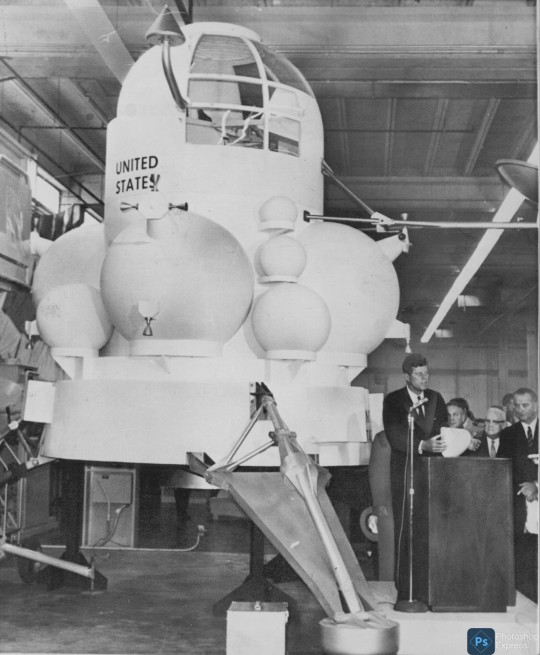
President John F. Kennedy speaks next to a prototype model of the Lunar Excursion Module, to be built by Grumman Aircraft Corporation of Long Island.
"PRESIDENT SEES 'THE BUG'
President John F. Kennedy stands before a model of the craft, known as 'The Bug' which the U.S. hores to make a lunar landing. Vice President Johnsen is at extreme right. Kennedy saw the model during his visit NASA installation in Houston today."
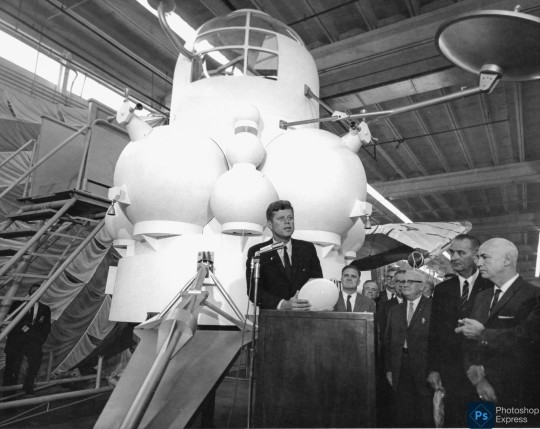
"President John F. Kennedy (at lectern) delivers remarks, following a tour of spacecraft displays inside a hangar at the Rich Building of the Manned Spacecraft Center, Houston, Texas. President Kennedy holds a scale model of the Apollo command module, presented to him by Director of the Manned Spacecraft Center, Dr. Robert Gilruth; a mock-up of the lunar lander (also known as 'the Bug') sits in background. Standing in back (L-R): Administrator of the National Aeronautics and Space Administration (NASA), Dr. James E. Webb; Governor of Texas, Price Daniel; Associate Administrator of NASA, Dr. Robert C. Seamans, Jr.; Director of Operations for Project Mercury, Dr. Walter C. Williams; Senator Alexander Wiley (Wisconsin); Vice President Lyndon B. Johnson; Dr. Gilruth. The President visited the Center as part of a two-day inspection tour of NASA field installations."
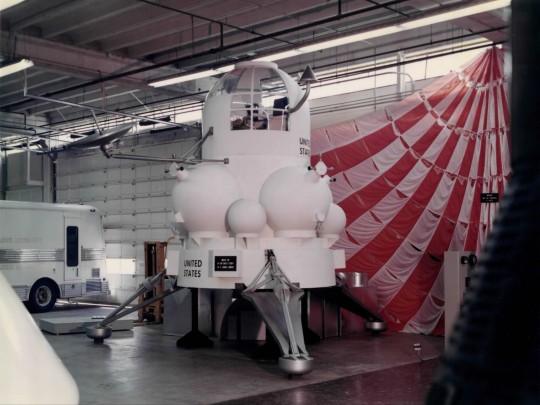

Other views of the Mockup.
Date: September 12, 1962
Long Island Daily Press Identifier: aql:33184 ldp-003526 ldp-003526
FK lib assession no. ST-387-20-62
NM Museum of Space History: link, link
#Lunar Module#NASA#Apollo Program#Mock-Up#Mock Up#Mockup#Grumman Aerospace Corporation#Grumman#Lyndon B. Johnson Space Center#Johnson Space Center#Manned Spacecraft Center#Houston#Texas#President#September#1962#my post
30 notes
·
View notes
Text
Arcanus Archives Entries.
DISCOVERIES OF AN ANCIENT EXPLORER.
(This weathered traveler's journal documents findings from a very long time ago. The pages are tattered and some of the ink has been smudged, making parts of its contents entirely illegible.)
It is pertinent that we do not remove the Summula from the grotto where it was placed so long ago. While its discovery is encouraging to any creature who might wish to explore ——--–—- is simply too dangerous.
The grotto keeps the Summula and its contents safe from harm. Were its contents to fall into the wrong hands, or worse, destroyed, I fear what may happen to our beloved Arcanus. Our way of life has long revolved discovering --——--—--. After the fall of –—–---——--- the Aether's cycles under any more strain.
My assistants and I will create a lock around the Summula's lectern. One that will use the Aether surrounding it for its own good. Without the Summula on hand, it will be harder to travel. But it's a setback ——--–— and myself are willing to take. After all, we traveled without it before.
There may not be a way to completely safeguard the Summula and its contents, but something is better than nothing.
— E.
1 note
·
View note
Text
"What we once thought of as an obscure reference to weird creationist tactics has become common parlance. Just about everyone knows what a Gish Gallop is, and every time a Republican steps up to a lectern we can trust them to deploy it."
2 notes
·
View notes
Text
not that anyone normal gives a fuck about whats going on with us but all my business-major specific classes have opened with dead, shocked silence for the last week. we're in shambles. yesterday one of my profs stood at his lectern and shouted 'DO NOT OPEN FIDELITY DO NOT OPEN ROBINHOOD DO NOT OPEN E*TRADE'. guy raises his hand and prof yells 'NO CRYPTO EITHER. STOP. DONT'. this is killing our single talent of smiling in khakis and pointing at a line that goes up
#im not going to talk about my portfolio on tumblr but like.#but the trump bros in my major are clearly scared theyre gonna get jumped#so thats good at least
1 note
·
View note
Text
for some reason while slightly-delirious-levels-of-tired last night i found myself just. obsessing over how we never ornament shit any more.
like, okay. the thing that sparked this was my partner's flatmate's laptop stand. it is a very basic laptop stand - it's a metal X-frame, and it has little grips on the top ends of the front, so each end is kinda like

(shh i'm still very tired i don't feel like getting my tablet out)
and I was just sitting there like... man. when else in HISTORY, when else in THE ENTIRE ARTISTIC HISTORY OF THE WORLD, would we consistently be overcoming the urge to turn that weird little grip into a carved hand? a bird with open wings? a talon, perchance?
and then looking around the flat like... this is not a nasty flat, it's not badly-decorated or anything, and the same is true of my house, but where are the ornamentations?
By ornamentations, I don't mean "things that look nice", and frankly I actually love a lot of unornamented furniture that's just a Nice Shape or just really well-made. but at some point we also lost the art of - not adding things, exactly, but integrating little decorative flourishes into the things we make and own. carving floral designs into the front of your bookshelves. embroidering your work shirts. painting little designs on your doorframes and your window shutters. carving monstrances and vines and silly little guys into the archways of your grand architecture. putting a cheeky little hand carving on the laptop stand you use for work.
tbh I think there's some answers to be found in this in my boy William Morris' writing from nearly 200 years ago, because so much of the Arts & Crafts movement was based on recognising this loss. How, as industrialisation and mass production reshape design, we move away from artisans proving their chops with little tricks of the trade, because they now have to Add Value in a way that justifies spending ten times more on something that does the same thing. How, with cottage industries hamstrung and the working classes no longer having the long winter nights to whittle spoons and weave cloth, individuals no longer tend to make the things they use. How patents and copyright trickle down to a culture where originality is found only in structural difference, in the shape and the silhouette and the things that can be noticed on first glance.
and the weird thing is, I like unornamented goods. I am a dyed-in-the-wool English Quaker and highly ornamented styles are not at all my natural habitat. the baroque gives me a fucking headache. the first thing I did when I moved into this house was be like "i am getting these overwhelming patterns and squiggly things OUT."
BUT
i also remember as a kid being absolutely enamoured of Robert "Mouseman" Thompson's carpentry. he was a local(-ish, North Yorkshire) carpenter who made furniture and also did a bunch of lecterns and rood screens for churches, stuff like that. And every piece he did, he had a signature that he added:

he was very Arts & Crafts inspired, and you can tell. his furniture on the whole was pretty simple, clean lines and carved channels. but from the 1920s until he died in 1955 he always put a mouse on his work somewhere.
but this is the ornamentation I think I miss in my life. these cheeky little touches. the mouse climbing up the altar rail. the lion feet on chairs and tables. the flowers carved out of a bookcase. braid trimming on upholstery. painted vines climbing a windowframe. stonemasons making shapes in a lintel:

not huge and dramatic and overwhelming. just... artisans, having fun. making things look special, because it's neat and because it's a way to show off and because they can.
idk. I have no conclusion. I just have an image of that laptop stand in lacquered wood with little hands and feet, like a million bookstands and folding stools and the like which were made pre-industrially, and I think I just want to live in a world where that would be. not a statement? not a one-off item?
where everything wasn't so utilitarian and so plain.
i guess what i'm saying is: i wish as a culture we made more stupid little creative choices to make the world we live in fun?
#and like TO BE CLEAR i am not saying those things don't EXIST#i'm saying they're not the NORM even for people who spend a lot on furnishings#like. i understand why flatpack ikea furniture is probably going to be plain and boring#i do not understand why this is also true of high-end handmade pieces. except that this is now what we expect.#and the other thing the arts and crafts movement was big on is that this is not (just) about the expensive artisanal stuff#it's also like. whittling and carving things you own. painting designs on your own stuff. you know. peasant shit.#it's folk art! it's making the things you own YOURS! which... i think is where there's a serious political element#in a society that constantly reiterates that nothing you own is truly yours#anyway idk. make things beautiful i guess. play. paint your lintel. draw on your walls. stencil your desk. add fun handles to your drawers.#i don't have a thesis statement i'm just picking through some Thoughts#the older i get the more the arts and crafts movement Matters to me tbh#THEY WERE RIGHT FELLAS. THEY WERE SO RIGHT ABOUT SO MUCH OF THIS INDUSTRIAL BULLSHIT.#(also. to be clear: i don't think the death of ornamentation is global. i'm coming at this solely from a uk perspective.)#(i think there are a lot of cultures which DO still ornament their homes and their lives fully. minimalism is endemic not pandemic.)#(which also makes me think we could bring it back for a post-industrial age. idk how though.)
1 note
·
View note
Text
*B R A D D O U G L A S P A I S L E Y*-like you may have never seen him before!
Fifteen
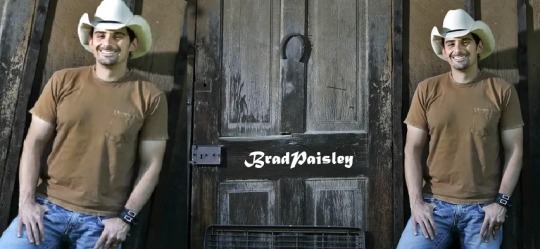
hmmm, Brad....... ^
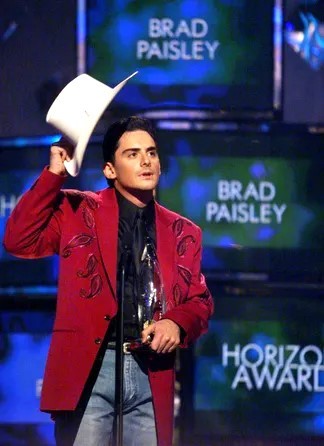
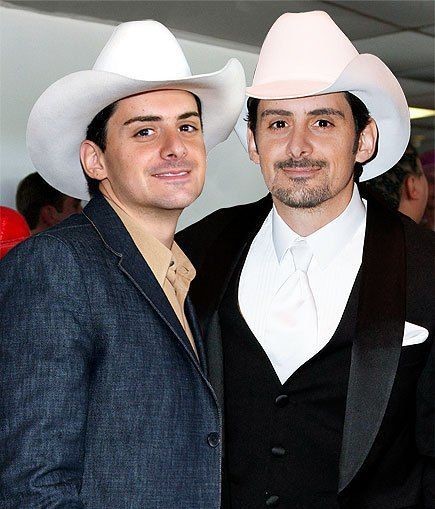
Brad & Bradley ^
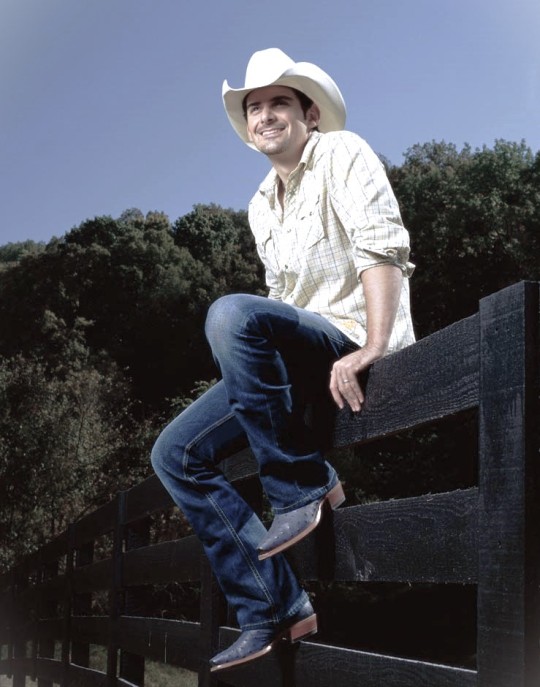
Brad Straddles The Fence ^
x4 ^
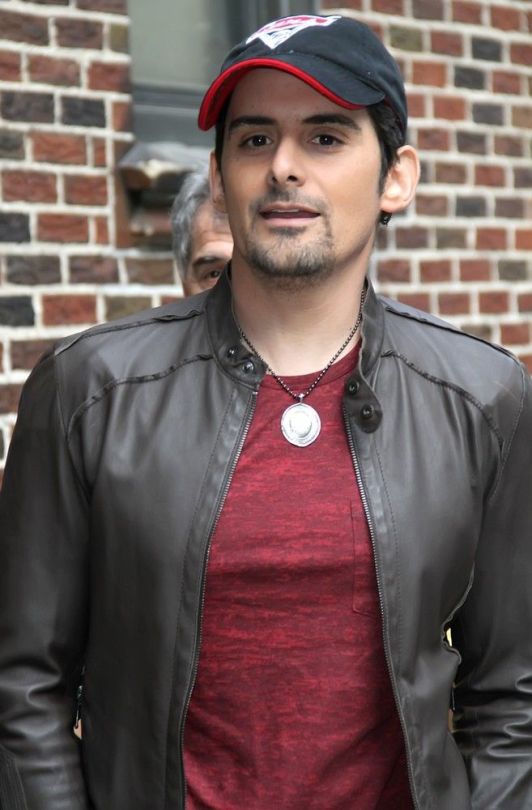
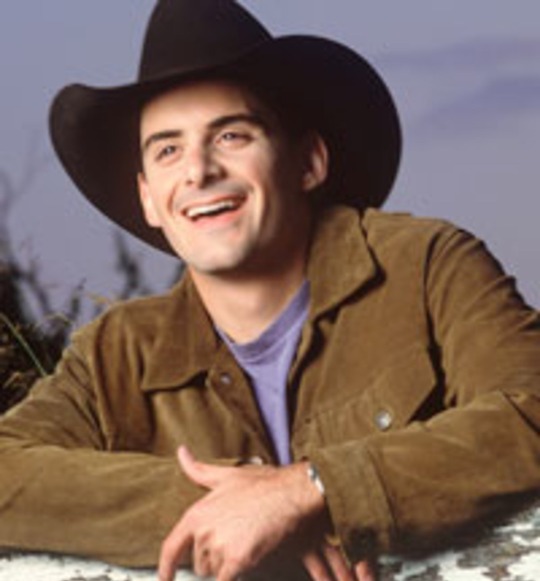
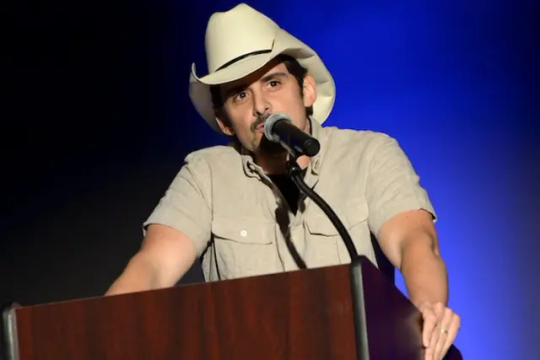
sing at the lectern (?) ^
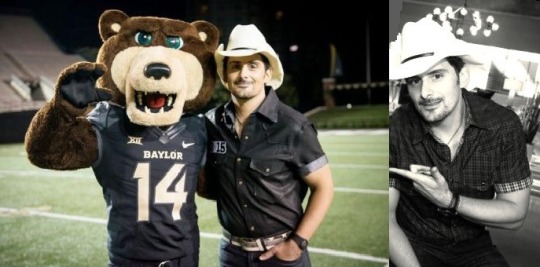
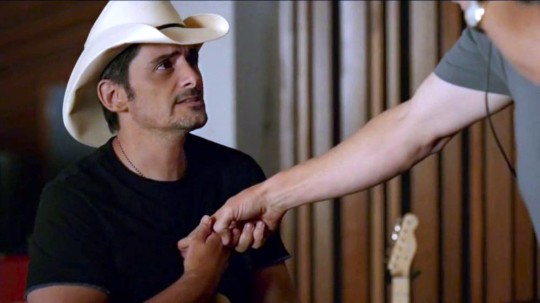
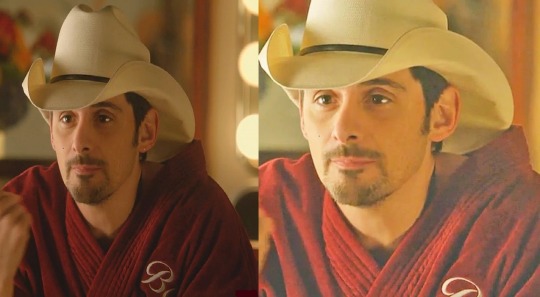
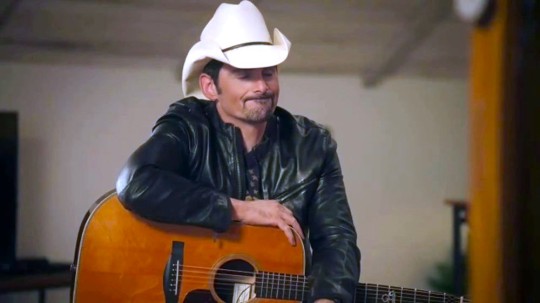
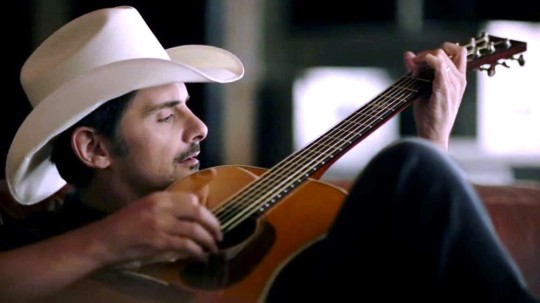
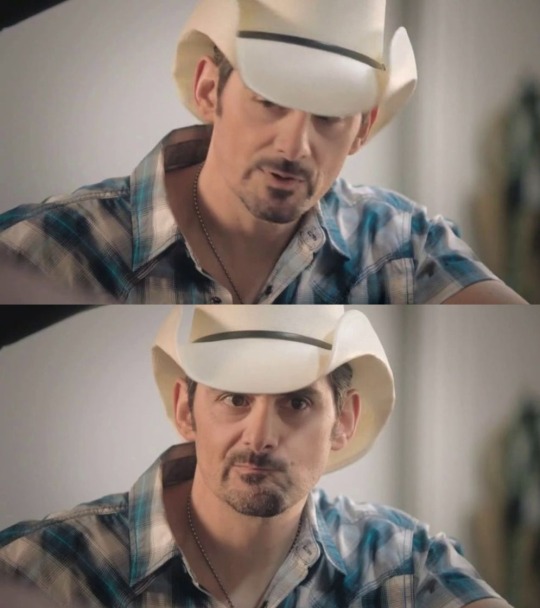
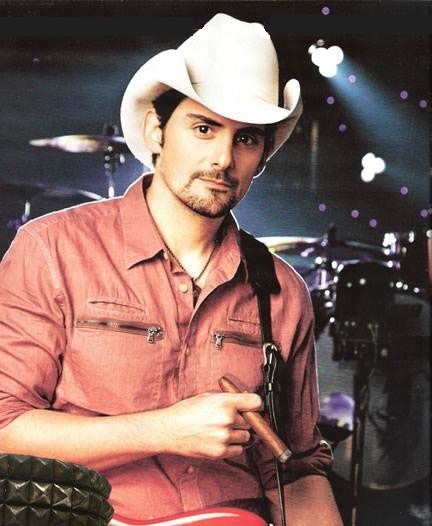
*B R A D P A I S L E Y*
the other side of the country star
{ 15.
0 notes
Text
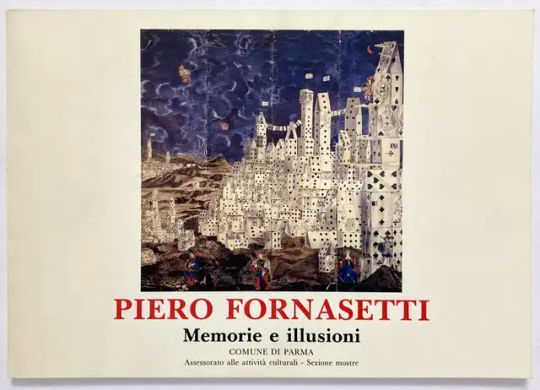
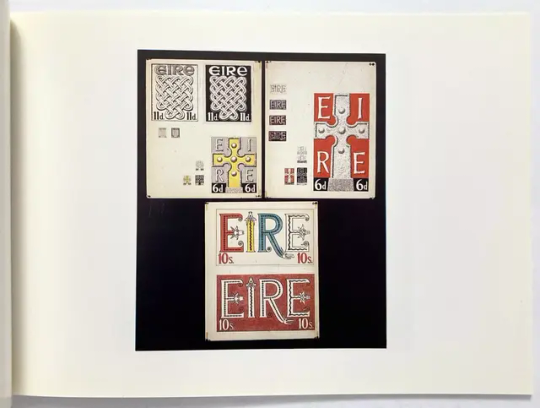
PIERO FORNASETTI Memorie e Illusioni - Comune di Parma ebay Lectern Books
0 notes
Text
hello again everyone!! here’s the trauma for Sephite that i promised! it starts in Ace’s POV and then switches to Sephite. enjoy!
i’m nearly jumping when i transmat into the
H. E. L. M. i’m still shocked that Phi asked me to accompany her to a reported Legendary Lost Sector in the Dreaming City, but i’m more ecstatic that i can protect her this time.
i stop halfway down the stairs and lean against the wall at the thought.
“you alright guardian?”
i turn at the familiar voice. “you still look emo as fuck Crow.”
he grins and shakes his head, “answer the question Ace.”
i look away from the Awoken Prince and into the glittering black pool i know that she’s in. “just… thinking a lot about Junei today.”
he nods in response and puts a hand on my shoulder. “look man, i know you aren’t always willing to, but if you both really need help, i’m only a call away.”
i shrug him off, “we won’t need your help. i promised to protect her and that’s exactly what i’m going to do,” i snap before walking through the portal to the Athenaeum.
i shake off the chills left from the travel and quietly head up the stairs, scouting out my Deck of Whispers among all the floating cards and smile pridefully at my large collection.
my breath suddenly leaves my chest. i almost think it’s Junei sitting between the Lectern and Ritual Table. hey bore hair pulled back into a messy bun, cloth hair band holding her pink baby hairs at bay, legs hanging off the ledge, coffee mug in hand and staring off into the abyss of Savathun’s throne world.
if it weren’t for her dyed hair i would’ve called out to her as i knew her. they’re so similar, yet so different… but i know the new Junei… Sephite… i wish i had waited, gotten to know who Sephite is before telling her about Junei… still, it didn’t change her.
Sephite is more to herself than Junei was, but still willing to meet new people. she’s more willing to go out and discover, plays devils advocate instead of blindly following orders, tries to find new ways to protect the Traveler besides endless fighting…
Junei was beautiful because she was kind but naive; Sephite’s beauty comes from her mind. i feared she’d try to be Junei, but she’s even more herself.
a soft smile returns to my face as i approach her. “good morning my lost love,” i say softly as i take my place next to her.
Dear Traveler, that smile is going to be my downfall one day.
“mornin Ace, would you like some coffee?”
i smirk at her. “i’d love some sweetheart.”
an adorable blush spreads across her cheeks. she stands up and walks over to the Lectern where her coffee maker displays her favorite constellation, the Scorpio.
“maybe don’t tell Eris i’m making coffee in the Lectern? she’ll kill me.” she laughs nervously.
“just don’t spill it then,” i tease.
i wrap my arms around her waist as she picks up the cord of the maker. “this okay?” i whisper.
Sephite only nods and i smirk as the blush runs down her neck.
she breathes deeply before her palm crackles with Arc energy and my coffee starts to brew.
“you’re magnificent, you know that Phi?” i tell her before gently kissing her bare shoulder.
“qu-quit that!” she yelps. “you’re gonna make me fry my coffee maker.”i chicle against her skin.
“sugar?” she whispers.
“however you like it little lost love,” i purr.
she starts humming a song i distantly recognize.
“whatcha singin in that head of yours, hm?”
“Mara told me it’s a song of Ancient Awoken. i started humming it around her one day and she knew exactly what it was. amazing what the soul can remember. apparently it’s a lullaby about stolen love, send fitting don’t you think?”
she smiles and hands me a coffee mug.
“i think so,” i say as i run my thumb across her cheek before taking a sip from my mug.
“so, you ready for today?” she freezes and slowly puts away the coffee maker.
“i… i think so… i’m definitely anxious about it, in a good and bad way, but i have to get over the fear. i can’t just keep backing out of missions when an Unstoppable is rumored to be there.” she says softly.
i smile at her. “well then go get ready. i’ll finish this coffee, and then we’ll go conquer that fear of yours.” i set my cup on the Lectern and pull her into a tight hug. “i’m gonna protect you this time Sephite. i’m not going to let you out of my sight.”
she hugs me back and lays her head on my chest. “i know… that’s the only reason i’m going.”
i kiss the top of her head and slowly let her go. “go on Phi.”
i watch her as she descends the stairs to the bottom of a large tree. she grapples up the tree into a hole i know to be her little home.
the coffee is sweet, and the air around me is calm. i feel at home. more at home than i do with my wife. i scowl at the thought.
if only i had waited. that bitch wouldn’t have had the chance to be adulterous if i’d just waited for Sephite.
but there’s no way i could’ve known… i was stuck looking for the love Junei gave me and shacked up with the first person who showed a semblance of it.
“i’m ready.” Sephite’s voice pulls me out of my thoughts. She truly takes my breath away. especially the crown atop her head, the stars of the face plate mesmerizing.
i knock back the rest of my coffee. “let’s get going then.”we land in the Divalian Mists and i grab her hand.
“how does it feel to be home?” i ask her gently.
“it feels… foreign… like i wasn’t ever here before…” she says distantly.
“hey guys!” a New Light shouts as he jumps over to us.
i click my teeth. “you working with us?” i ask.
“sure am! my name is Jaques, nice to meet ya,” he sticks out his hand and i scowl at him.
Phi takes his hand and shakes it. “i’m Sephite, this is Ace, is lovely to meet you.”
he pulls out his ghost. “boy am i glad to i was paired with the both of you! your ranks are so high!”
i pull out my own ghost and my scowl deepens, “yeah well don’t just sit there and leave Scorn just to mooch off loot,” i growl.
“ain’t gotta worry bout me boss,” he says and pulls out his gun, pretending to shoot enemies.
Sephite giggles and leans over to me. “New Lights are adorable aren’t they? like children gifted a new toy.”
her smile soothes my heart. “yeah, this will be easy, he doesn’t look too bad.”
“let’s go shall we?”
she sounds kind, genuine even, but i hear a slight wave in her voice. she’s terrified.
“come here a second Phi,” i lead her away from the New Light and whisper down to her. “we don’t have to do this today sweetie,” i rub her arms as she shakes, “we can wait for the next one.”
“no, no,” she says firmly, “we have to do this now, i mean look at him,” she gestures to the New Light, “he looks so excited to do this, we’re not only doing this for me.”
i smile down at her. she sounds just like my June Bug… “okay sweet girl. OI!” i shout over to the New Light. “we’re goin, cmon!”i summon my sparrow and climb on. i hold my hand out. “Sephite?”
she smirks. “and let you try to maneuver the fog? please, i can see through it better.” she summons her own sparrow and throws her leg over. “ready Jaques?”
the New Light is practically jumping on his bike. “born ready.”
i roll my eyes and Phi laughs. “follow me closely. where you see mist and deep fog, i see nothing.”
Sephite takes off, followed by me and the New Light. she slows once we break through the mists and leads us slowly underneath the mountain. we weave through cracks and over hills until we come across Scorn.
she bounds off her bike and takes flight, unholstering her gun and quickly taking out the Abomination and Raiders.
“RISK RUNNER BABY!” she shouts, slowly descending to the ground.
i laugh and hold out my hand to her, which she takes.
“where are we?” the New Light asks.
“did you not do your research dumbass? we’re in Rheasilvia,” i growl.
“be nice, Ace,” Phi scolds. she walks over to the edge of the cliff. “down we go,” she says as she floats down.
i follow after her, but the New Light pauses at the top.
“come on Jaques! we won’t let you fall!” she calls up to him.
he slowly scales the cliffside and stumbles when he lands. i cock my tongue and Phi heads into a crack in the mountain.
“welcome to the Chamber of Starlight.” i say, my voice echoing off the walls.
“neat,” the boy says.
i roll my eyes and leads us through the tunnel. i hop off a small ledge and grab Phi’s waist as she heads after me. “don’t leave my sight,” i say firmly.
“i won’t,” a waver filling her voice again.
we make our way further into the cave. “where the he’ll are we?”
“someone didn’t do their research,” Phi teases as she strides ahead of me. “we’re underneath the castle.”
“where is everything?” the New Light asks.
“why did you have to say that?” i look over to him.
Sephite laughs nervously. “that, is a great question.”
we slowly move into an open area and hide behind a large rock. i pop out the side quickly and scan the area before pulling back.
“alright, it’s all Scorn, i didn’t see the Unstoppable, but that’s okay,” Sephite sucks in a breath and slowly nods, “remember, it’s okay to use your subclasses. there’s absolutely no shame.”
they both nod and i take a deep breath. “alright, let’s go.”
Sephite climbs the top of the rock and takes to the air, the New Light charges with a sword, and i grin as i load my Monte Carlo.
i spring into action once i hear Sephite’s machine gun go off. headshot after headshot and my grin grows until its a malevolent smile. a laugh escapes my throat once all the Scorn lay at my feet.
Sephite lands herself next to me shaking.
“Ace?”
“hm?”
“where the fuck is the Unstoppable?”
i turn to her and take her trembling hands.
“hey, hey, shh it’s okay, maybe someone already defeated it, let’s check.”
she checks over my shoulder as i thumb through my ghost.
“look, Chamber of Starlight, status of Unstoppable Champion-“ i stop. ‘Undefeated’ glows across the projection.
Sephite yelps as the ground starts shaking, the New Light frozen in place. we both turn quickly.
Phi gasps. “Taken,” she squeaks.
“JUMP!” i yell as the monster powers up its weapon.
“JAQUES!” Sephite shouts, but it’s too late for him. he turns into pink mist as the blast hits him and his ghost flies away to hide.
Sephite lands in front of the Champion and screams as Stormtrance erupts from her fingertips.
the Taken charges her, “SEPHITE NO!” but i’m too late. the monster lashes at her and throws her through a portal.
i roar as my wings sprout from my shoulders. i slam my frozen fists into the ground before taking flight and throwing my Sentinel Shield at its head.
a flaming maul flies past me. i start shaking with anger as i finish off the monster with my chain gun.
“Jaques,” i growl.
“where’s Sephite? did she go through that portal?” he asks frantically.
“JAQUES,” i roar.
“WHAT?” he yelps.
i turn my head over my shoulder. “go to the
H. E. L. M. contact Crow, Zavala, Ikora, Eris, anyone you can get ahold of, tell them to go to the Ascendant Realm, we just lost our Hive Princess.”
i hear his transmat signal open and i walk through the portal.
i groan as i open my eyes. i move to stand and cry out, grabbing my side.
a shard of stone in my side. great.
i scream as i rip it out. i remove my robe’s belt and tie it tightly across my rib cage.
“ACE!” my voice echos throughout the void.
i suck in a breath as i stand and stumble down the hill.
“ACE!” i shout as i glide over a ridge.
“please have followed me here,” i sob. “i don’t wanna lose myself, please Traveler please,” i fall to my knees, “i don’t wanna die again.”
i hear a roar as i startle awake. how long have i been laying here? i look frantically at my body. i have a sigh. no sign i’m being overtaken by Blight and my boding has slowed.
another frustrated yell echos through the void. “SEPHITE!”
i dart up. “ACE!” i call back.
“PHI!”
i sprint towards the voice despite my pain.
after what felt like hours of jumping, scaling, grappling, and running i finally find him. never did i think id be so relieved to see his one tell of his overwhelming anger.
“Ace?”
i gasp as he slowly turn towards me. Blight has overtaken him from head to toe.
he clicks and twitches in my direction before lunging at me.
i yelp and throw my suspension strand and it catches his fist long enough for me to jump out of the way.
Ace clicks around as i take off my boots silently. i throw one of them next to a stone pillar surrounding us and he lunges for it, quickly ripping it to shreds.
i step backwards onto shards of metal. i look below me and cover my mouth, holding back a sob. it’s his ghost laying in shards.
i look back to Ace to see him charging back at me.
i drop my second boot and try to jump away, but he grabs my leg and pulls me to the ground. he straddles my hips, pinning me to the ground and wraps his hands around my neck. i struggle against his hold and try to pry his hands from my throat to no avail.
who am i kidding? i couldn’t successfully spar against Ace when he was only a guardian, forget trying to overpower him now.
black begins to invade the corners of my sight and i shoot three suspensions in sequence, pull him off my body. i gasp and pull myself away from him.
“please Ace,” i choke, “ i don’t wanna hurt you.”
he pulls himself free from his binds and charges at me with a roar.
i throw three more suspension bindings and a gravitational void orb for good measure before taking a deep breath and lunging at him myself. i wrap my legs tightly around his waist and claw at the opening of his Ahamkhara helmet. he frees his arms and wraps them around my ribs, crushing me. i cry out and my fingers find purchase, but the helmet only flakes revealing a glowing teal iris.
i roar in pain as i desperately tear away his helmet.
“ACE PLEASE!”
i know it’s futile when he slams me against a stone pillar, knocking the wind out of me. regardless i throw my helmet to the ground and cup his face, gulping in air.
his lips curl into a snarl and he clicks.
throwing caution to the wind, i use my remaining strength to push myself forward and crash my lips against his.
his grip loosens and his hands gently cup my cheeks, tenderly deepening the kiss.
he pulls away and his eyes still to a glowing honey color. he reaches up and weakly pulls away the headband concealing my eye and smiles softly.
“A-Ace?” i stutter.
“i just had to see all of you before… i’m… gone…” he collapses.
i fall to my knees next to him and shake him gently.
“Ace? ACE!”
“Sephite!”
my head snaps up to see all of the friends i made on my journey.
“help him,” i sob.
Eris kneels next to me and places her hand over his heart. she shakes her head.
“he’s gone Sephite.”
“no,” i choke out. “nonononono NO! save him! HELP HIM!” i wail. “ACE PLEASE!”
Eris touches my shoulder and everything goes black.
“you should be resting Sephite.”
“leave me alone Osiris.”
i stare at the headstone i had placed in front of my home.
“staring at him won’t bring him back, Seph.”
“DAMMIT DON’T YOU THINK I KNOW THAT!” i snap. “i… i’m sorry.”
“no need,” he says calmly. “i couldn’t imagine losing Saint that way.”
we stand in silence for a few moments before Osiris clears his throat.
“i have a gift for you.”
i flinch as he brushes away the hair concealing my bruised neck. he wraps thread around my shoulders and secures it at the nape of my neck.
“you have always been like a daughter to me Sephite, this is the absolute least i could do.”
i look down at the charm and tears well in my eyes. a shard of Ace’s ghost.
i turn to my father figure and breakdown in his arms, my body finally giving way to exhaustion.
i hope you all enjoyed!!
#monketalks#destiny guardians#destiny the game#destiny oc#destiny 2#ikora rey#zavala#osiris#ocs#oc#original character
0 notes
Photo

Vintage Hardwood/Wood/Wooden/Copper Ornate/Fine Judge/Lawyer/President GAVEL
Vintage
Smoooth, beautiful, Hardwood!
10" L x 3" W Head
Very nice condition.
I package well and ship out daily!
Gavel
13 languages
Article
Talk
Read
Edit
View history
Tools
From Wikipedia, the free encyclopedia
This article is about the hammer used in courts and auctions. For the basketball player, see Anton Gavel. For other uses, see Gavel (disambiguation).
Gavel
Wooden gavel
ClassificationCeremonial malletUsed withSound block
A gavel is a small ceremonial mallet commonly made of hardwood, typically fashioned with a handle. It can be used to call for attention or to punctuate rulings and proclamations and is a symbol of the authority and right to act officially in the capacity of a presiding officer.[1] It is often struck against a sound block, a striking surface typically also made of hardwood, to enhance its sounding qualities. According to tradition, Vice President of the United States John Adams used a gavel as a call to order in the first U.S. Senate in New York in 1789. Since then, it has remained customary to tap the gavel against a lectern or desk to indicate the opening and closing of proceedings and, in the United States, to indicate that a judge’s decision is final. It is also used to keep the meeting itself calm and orderly.
Etymology[edit]
Two crossed gavels in the coat of arms of Kauhajoki
In Medieval England, the word gavel could refer to a tribute or rent payment made with something other than cash.[2] These agreements were set in English land-court with the sound of a gavel, a word which may come from the Old English: gafol (meaning "tribute").[2] Gavel would be prefixed to any non-monetary payment given to a lord (for example: gavel-malt) and can be found as a prefix to other terms such as gavelkind, a system of partible inheritance formerly found in parts of the UK and Ireland. A gavel may also have referred to a kind of mason's tool, a setting maul that came into use as a way to maintain order in meetings.[2]
Use in meetings[edit]
A gavel may be used in meetings of a deliberative assembly. According to Robert's Rules of Order Newly Revised, the gavel may be used to signify a recess or an adjournment.[3][4] It may also be used to signify when a member makes a slight breach of the rules.[5]
Demeter's Manual of Parliamentary Law and Procedure states that, in addition to an optional light tap after a vote, there are three other uses of a gavel:[1]
To attract attention and call a meeting to order. In most organizations, two taps raise and one tap seats the assembly; in others, two taps raise and three taps seat it.
To maintain order and restore it when breached in the course of the proceedings. (Tap the gavel once, but vigorously).
To be handed over to successors in office or to officiating officers as ceremonials, etc. (Always extend the holding end).
Improper uses include banging the gavel in an attempt to drown out a disorderly member.[5] In this situation, the chair should give one vigorous tap at a time at intervals.[1] Also, the chair should not lean on the gavel, juggle or toy with it, or use it to challenge or threaten or to emphasize remarks.[1]
The chair should not be "gaveling through" a measure by cutting off members and quickly putting a question to a vote before any member can get the floor (in this connection, the chair should not use the gavel to improperly signify the end of consideration of a question).[6] The expression passing the gavel signifies an orderly succession from one chair to another.
In addition to the use above during business meetings, organizations may use the gavel during their ceremonies and may specify the number of taps of the gavel corresponding to different actions.[7][8]
Use in courts of law[edit]
The gavel is used in courts of law in the United States and, by metonymy, is used there to represent the entire judiciary system, especially of judgeship. On the other hand, in the Commonwealth of Nations and Republic of Ireland, gavels have never been used by judges, despite many American-influenced TV programs depicting them.[9][10][11] An exception is the Inner London Crown Court, where clerks use a gavel to alert parties in court of the entrance of the judge into the courtroom.[12][13]
United States Congress gavels[edit]
United States Senate gavels
https://www.etsy.com/listing/1502346635
0 notes
Text
BAD BUDDY FILMING LOCATIONS 10
This post steps away from the original BBS to look at filming locations for the Bad Buddy episodes of Our Skyy 2 (overlapping with ATOTS as well), that aired in May/June 2023.
I think the fandom was so overjoyed at getting PatPran and the rest of the gang back in Our Skyy 2 that we were willing to overlook any inconsistencies (Pat's Baseball Mom hair included 😂), and this applies to the locations too. 🥰
Anyway, OS2 x BBS x ATOTS didn't use Rangsit University to represent South Technology U, and instead filmed the gang's academia-set scenes in King Mongkut's Institute of Technology Ladkrabang (KMITL).
KMITL is about 30km east of central Bangkok in Nonthaburi province, not far from Suvarnabhumi Airport:
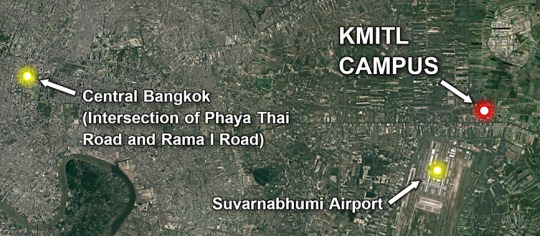
The auditorium scenes were filmed at the KMITL Main Auditorium:
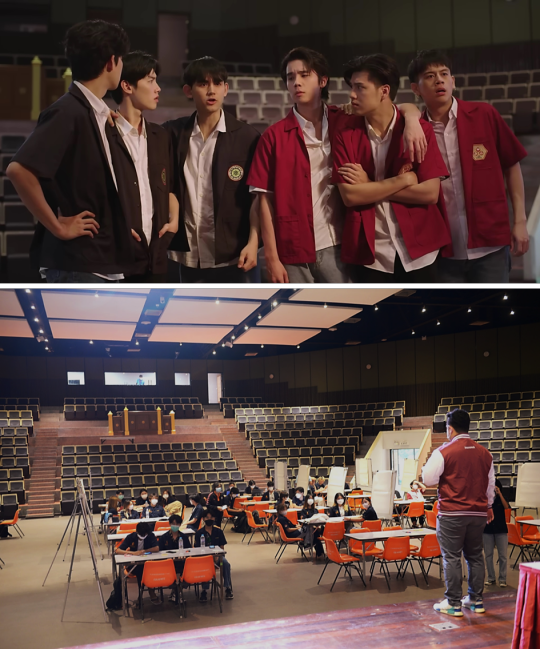
(top) Our Skyy 2 x Bad Buddy x A Tale of Thousand Stars Ep.1 [1I4] 6.06 – the Archi and Engine boys watch as PatPran appear to fight in silhouette backstage; (bottom) this photograph dated 24 March 2023 is of the KMITL Main Auditorium, located at the Faculty of Engineering (posted on Facebook at this link here) – the seats, acoustic paneling at the rear wall, white parapet around one exit to the right and what looks like a timber lectern with yellow, pyramid-topped pilasters a few rows down from the control room are all a match
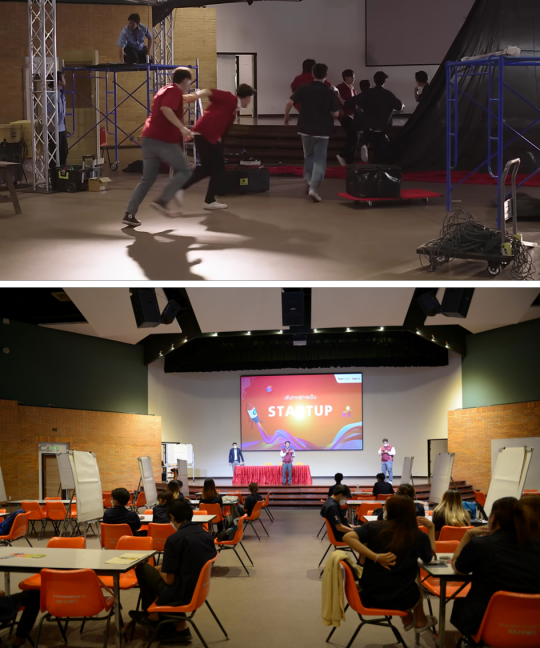
(top) Our Skyy 2 x Bad Buddy x A Tale of Thousand Stars Ep.1 [1I4] 7.07 – the Archi and Engine boys rush to separate Pat and Pran after the curtain falls; (bottom) this view of the stage in the KMITL Main Auditorium (from a post at the School of Engineering's Facebook, linked here) is a match, with the yellow-brown brick walls, red-brown steps, black-edged projection screen and stage doors all corroborating details
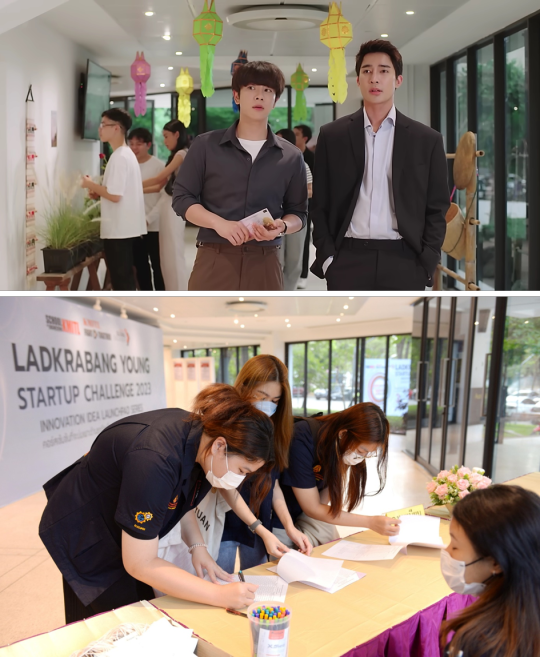
(top) Our Skyy 2 x Bad Buddy x A Tale of Thousand Stars Ep.4 [3I4] 0.42; (bottom) this image from KMITL's School of Engineering Facebook (dated 24 March 2023 and linked here) shows the KMITL auditorium lobby – note the light fittings and black window frames
PatPran's discussion regarding preparation and sponsorship of their respective plays was at KMITL's School of Architecture, Art and Design:
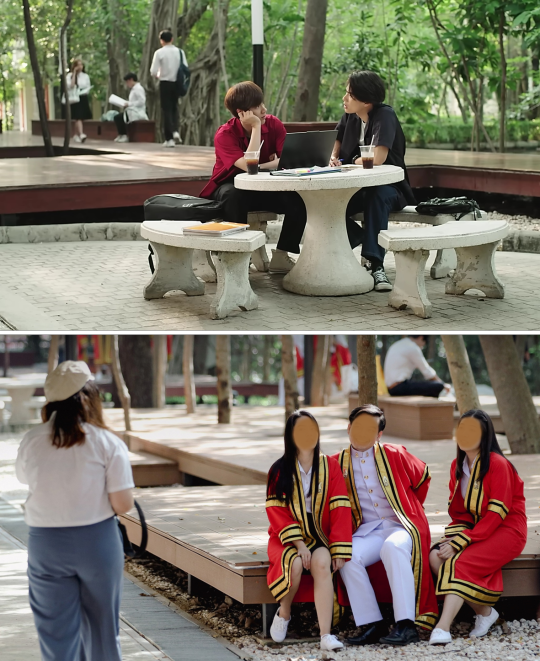
(above) Our Skyy 2 x Bad Buddy x A Tale of Thousand Stars Ep.1 [1I4] 13.22 – Pat and Pran discuss their level of preparedness and sponsorship of their faculty plays; (bottom) this photograph dated 10 December 2022 was taken at the KMITL School of Architecture, Art and Design – the timber platform, gravel base and garden furniture (at the top left of the image) are a match (image from the school's Facebook, linked here)
The location of the Archi-Engine charity sweep was outside the ceramic workshop of KMITL's School of Architecture, Art and Design:
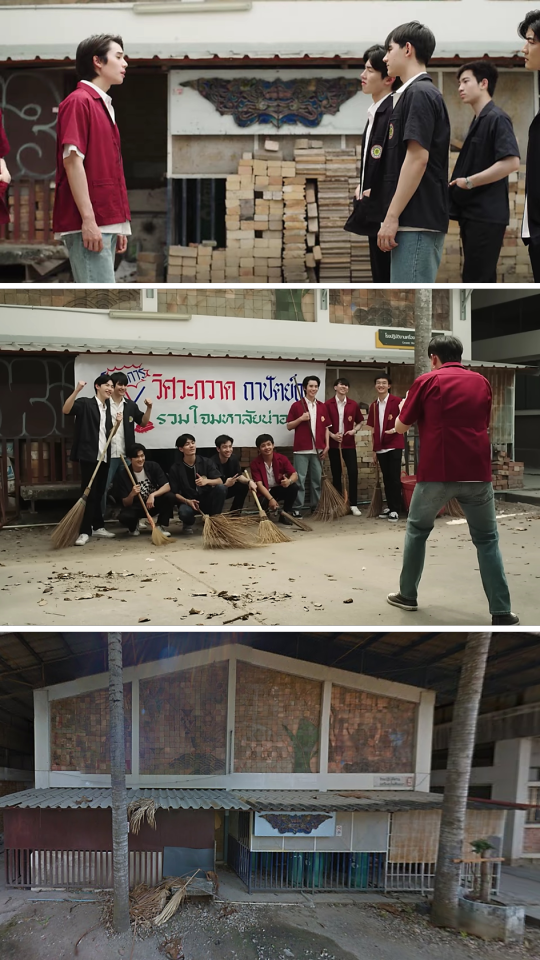
(top) Our Skyy 2 x Bad Buddy x A Tale of Thousand Stars Ep.1 [1I4] 1.49; (middle) Our Skyy 2 x Bad Buddy x A Tale of Thousand Stars Ep.1 [1I4] 2.36; (bottom) this image, dating to March 2013 is from Google Maps Street View, and shows the ceramic workshop at the KMITL School of Architecture, Art and Design (map coordinates 13°43'30.8"N 100°46'38.5"E) – corroborating details include the concrete bench and brown vertical bars (behind Mo in the image at the top), the palm tree to the right, the gray corrugated metal roof, and (the biggest tell) the mural made up of clay tiles above the corrugated roof (the image is from 10 years ago though, so some minor details are different)
The location of the Engine boys' drinking party was in the adjacent furniture workshop of KMITL's School of Architecture, Art and Design:

(top) Our Skyy 2 x Bad Buddy x A Tale of Thousand Stars Ep.1 [4/4] 1.07 – Korn, Mo and Chang the morning after their drinking party; (bottom) a view of the furniture workshop at KMITL's School of Architecture, Art and Design (from the Department of Industrial Design's 360° virtual tour website, linked here)
The corridor where Ajahn Pichai told Pran to get permission to use PhuTian's story for the Architecture play was opposite the Design Studio of the School of Architectural and Design Intelligence:
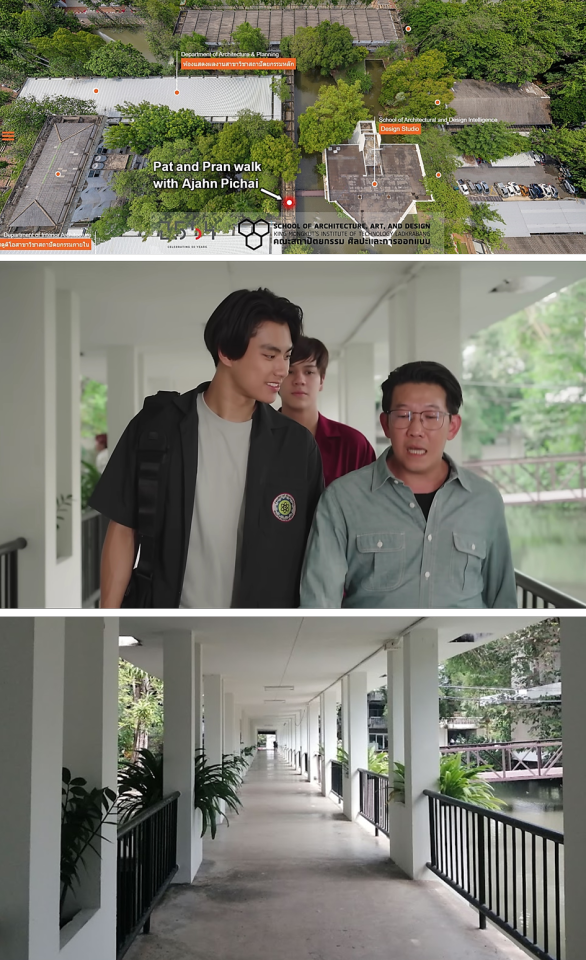
(top) Location of the walkway on the KMITL campus (from the School of Architecture, Art and Design's 360° aerial tour, linked here); (middle) Our Skyy 2 x Bad Buddy x A Tale of Thousand Stars Ep.1 [2/4] 12.01; (bottom) photo from Google Maps, dated November 2022 and taken by Anusorn P. (linked here) – note the bridge at the right
In Our Skyy 2, Pat/Pran's student apartment moved away from Tinidee Hotel Bangkok Golf Club and was represented instead by the Executive 2-Bedroom Suite (Type 5) at Northgate Ratchayothin Hotel/Serviced Residence (248 Ratchadapisek Road, Ladyao, Chatuchak, Bangkok 10900; map coordinates are 13°49'46.7"N 100°33'47.9"E):

The following are some images of Northgate Ratchayothin, with matching images from OS2 x BBS x ATOTS:

(top) An image from the hotel's website, linked here; (middle) Our Skyy 2 x Bad Buddy x A Tale of Thousand Stars Ep.1 [1I4] 8.47; (bottom left) entrance door to the unit, extracted from the hotel's website; (bottom right) Our Skyy 2 x Bad Buddy x A Tale of Thousand Stars Ep.1 [1I4] 10.12 – Ink and Pa drop by with sukiyaki
Northgate Ratchayothin was also the location for Tinn and Gun's tuition safehouse in My School President, although there they used a different 2-bedroom unit (Type 3) – see this link here and write-up here for more info. 😉
The Hightem office, where Pat and Pran go to seek sponsorship for their faculty plays, was also represented by Northgate Ratchayothin (which is why the reception looks more like a hotel lobby than an office one):

(top) Our Skyy 2 x Bad Buddy x A Tale of Thousand Stars Ep.1 [2/4] 0.41 – PatPran at the Hightem reception; (bottom) the Northgate Ratchayothin reception counter
The Hightem meeting room was also at the same location (naturally):

(top) Our Skyy 2 x Bad Buddy x A Tale of Thousand Stars Ep.1 [2/4] 4.49 – Pran presents his proposal to the people of Hightem while Pat pesters Korn for the Engineering version; (bottom) an image of the boardroom from Northgate Ratchayothin's website, that can be rented for meetings (and filming)
The bus station where Pran departed for Chiang Mai and left Pat behind is the Sahaphan Roi Et Tour Company bus terminal. (Map coordinates are 13°49'38.5"N 100°33'23.6"E – the official address is 8/36 ซอย วิภาวดี 17 ถนน วิภาวดีรังสิต Lat Yao, Chatuchak, Bangkok 10900, but Google Maps will take you to a different location if you input this address.)

(top) An image of the Sahaphan Roi Et Tour Company bus terminal, extracted from Google Street View ; (bottom left) an image extracted from a photo on Google Maps (linked here), taken by พรรษชนม์ กุตัน and dated August 2016 – note the yellow hexagons behind the glass in the background, visible briefly at Ep.1 [4/4] 2.26 and 2.29; (bottom right) Our Skyy 2 x Bad Buddy x A Tale of Thousand Stars Ep.1 [4/4] 2.30 – Pat buys a ticket to Chiang Mai
Once the action moved up to Pha Pun Dao, I did remember enough about ATOTS to know that OS2 x BBS x ATOTS re-used the same buildings up in the mountains. Most of these – unlike settings in other BLs – had been purpose-built for the show, and it was cool to see them still standing, looking good three years or so after they were first erected.
With a bit of searching, I can confirm that the Pha Pun Dao village buildings (Tian's house, the Pha Pun Dao school, etc.) are located at The Union of Hill Tribe Villages and Long Neck Karen in Nang Lae, Chiang Rai province. Due to the popularity of ATOTS, the set buildings can be visited as a tourist attraction in their own right, and are marked on Google Maps as such:
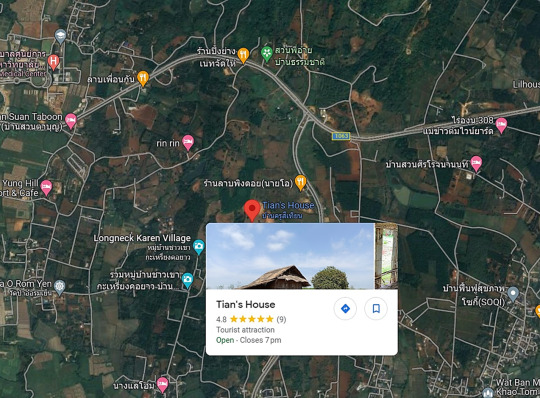
(above) The location of Tian's house (and other Pha Pun Dao buildings) on Google Maps, also linked here (the approximate map coordinates are 20°01'18.6"N 99°53'36.4"E)
There are in fact thousands of photographs posted on Google Maps for this location and I haven't been through all of them. The following is a sampling, with some matching scenes from ATOTS and/or Our Skyy 2.
Here's Tian's home in both ATOTS and OS2 x BBS x ATOTS. Three years later it's looking much more lush with planting everywhere, but it's definitely the same house:

(top) A Tale of Thousand Stars Ep.4 [4/4] 3.27; (middle) Our Skyy 2 x Bad Buddy x A Tale of Thousand Stars Ep.2 [1I4] 3.46; (bottom left) this photograph of Tian's house dated January 2023 was taken by Bogdan Ion and linked here; (bottom right) this photograph dated April 2021 was taken by Rachen Tananchai and linked here
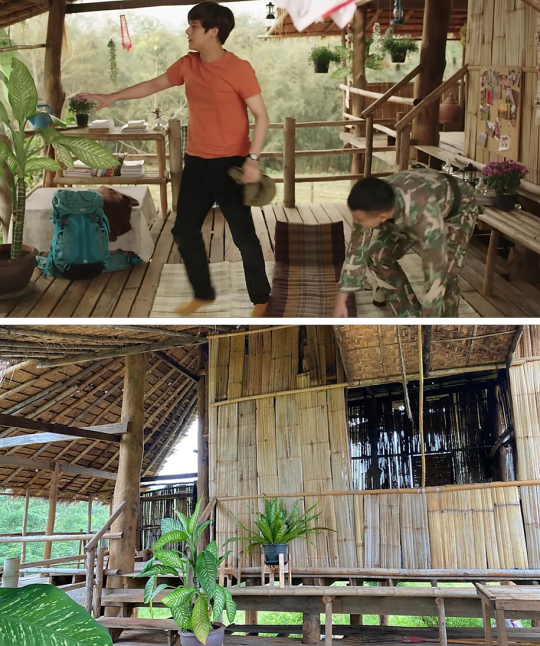
(top) Our Skyy 2 x Bad Buddy x A Tale of Thousand Stars Ep.2 [1I4] 3.19; (bottom) this photograph partially showing Tian's dining area (the bedroom is also behind that window) was posted by mayu minnie in September 2022 on Google Maps (linked here)– the potted Dieffenbachia (dumb cane) is also a match

(top) Our Skyy 2 x Bad Buddy x A Tale of Thousand Stars Ep.2 [1I4] 12.35; (bottom) this photograph of Tian's kitchen was posted by mayu minnie on Google Maps (linked here) and dates to September 2022

(top) Our Skyy 2 x Bad Buddy x A Tale of Thousand Stars Ep.4 [1I4] 15.36; (bottom) this photograph dated September 2022 was posted to Google Maps by mayu minnie (linked here) and shows the dining area at the front of Tian's House

(top) Our Skyy 2 x Bad Buddy x A Tale of Thousand Stars Ep.2 [1I4] 21.36; (bottom) this photograph of the bedroom in Tian's house is dated September 2022 and was posted on Google Maps by mayu minnie (linked here) – the proportions and details (especially the blue mosquito net, but also the posts and the wall panels of bark/fronds/bamboo) are a match
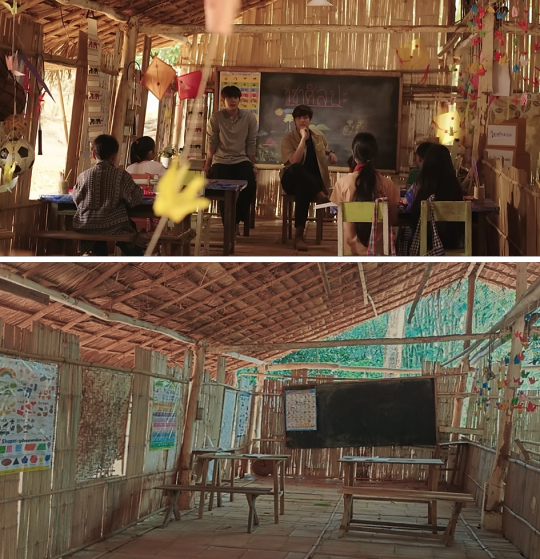
(top) Our Skyy 2 x Bad Buddy x A Tale of Thousand Stars Ep.2 [2/4] 3.20; (bottom) this photograph of the Pha Pun Dao schoolroom (with part of its back wall missing) is dated February 2023 and was posted on Google Maps by でんいちタイ語塾 (linked here)
The iconic waterfall that PatPran visit is Huai Mae Sai Waterfall, also in Chiang Rai:

(top) Our Skyy 2 x Bad Buddy x A Tale of Thousand Stars Ep.2 [2/4] 7.13; (bottom) this photograph of Huai Mae Sai waterfall is dated January 2021 and was posted on Google Maps by เชียวชาญ ปานข่อยงาม (linked here)
Filming also took place within the Union of Hill Tribe Villages and Long Neck Karen compound:

(top) Our Skyy 2 x Bad Buddy x A Tale of Thousand Stars Ep.2 [2/4] 1.47; (bottom) this photograph of the corresponding location at The Union of Hill Tribe Villages and Long Neck Karen dated June 2019 was posted on Google Maps by Ruben Torres and linked here
This is a Bad Buddy blog so I'm not going into the Ep.4 PhuTian locations in detail; they're easy enough to find because they were mostly at Emquartier Mall and the Buddy Oriental Riverside Hotel.
Emquartier Mall was also where Ice Paris and Pearwah's music video for the boppy theme song รักติดไซเรน to My Ambulance was set. 😍
But here's just one PhuTian location to close things off for good measure:

(top) Our Skyy 2 x Bad Buddy x A Tale of Thousand Stars Ep.4 [2/4] 10.16; (bottom) image from Drop By Dough Café's Facebook dated 19 March 2023, linked here
[P.S. – here are the links to all the BBS filming location posts:
Part 1 – The legendary rooftop, PatPran’s student apartments, their high school, the white arches behind the Engineering Canteen, the Zero Waste Village and various seaside scenes, their honeymoon suite, the hospital where Pat was treated for his gunshot graze, and the high school reunion.
Part 2 – Pat and Pran’s family homes, the Flagpole Bar, the car park fight location, and the Jae Si Curry House.
Part 3 – Various locations at and around the rugby field, including Pat’s photoshoot with Ink, the rugby bleachers, the iced milk tea (and green tea wave) picnic table, InkPa’s photography picnic, the old bus stop and the new bus stop. Also Khun Noppharnach’s pharmacy.
Part 4 – Pat’s Engineering Faculty (in and around Rangsit University’s College of Engineering).
Part 5 – Pran’s Architecture Faculty (Rangsity University’s School of Architecture).
Part 6 – Various F&B and commercial locations (eateries, shops, malls and a market). Also the setting for Pat, Pran and Wai's fight at the base of PatPran's student apartment building, as well as the scene where Pa says to Ink "Anyone taller than me is fine".
Part 7 – Pat’s post-graduation apartment and Pran’s residence in Singapore.
Part 8 – Various campus locations filmed within Rangsit University’s Digital Multimedia Complex, including the auditorium and the Freshy Day Song Contest.
Part 9 – The LogTech Building and Pran’s architectural office in Singapore.
Part 10 – Locations for the Our Skyy 2 x Bad Buddy special episodes.
Part 11 – The apartment for rent that Pran went to view in Ep.2, the elevator scene with Pat just after the viewing, and Wai’s apartment.
Part 12 – PatPran’s elementary and high schools, as well as the location of Pa’s near-drowning.
Part 13 – Random locations (Pran searching for his lost earphones, the covered car park where Wai spied on Pat serenading Pran with Nanon's Love Score, the airport car park, the SouthTech U Library, PatPran's rainy day ointment interlude, their motorbike and truck rides in Hua Hin, the approach road to Uncle Yod's bar, the filming location for the music videos Just Friend? and Our Song, and Pran's street address in Singapore).
Will update this list if I can track down the hardware stores – the one remaining location still unidentified! 🤣]
#bad buddy filming locations#bad buddy locations#patpran#bad buddy analysis#telomeke#bad buddy#our skyy 2#our skyy 2 x bad buddy#our skyy 2 x bad buddy x a tale of thousand stars#os2 x bbs x atots
34 notes
·
View notes
Text
the sky’s not falling down just yet
@natsumeweek 2022 day 5; whispers/sharing
read on ao3
(previous) (next)
x
Technically, it’s considered an emergency placement. Given Touko and Shigeru’s unilateral success with a case as difficult as Takashi’s, it doesn’t take much for Ono to push the arrangements through. They have a lot of meetings with her, and even Sakamoto makes a few trips out, and slowly but surely the tricky details are hammered down and inexhaustible amounts of paperwork are filed away.
Meanwhile, Takashi helps Shigeru convert their empty guest bedroom into something warmer and more personal. Touko lovingly prepares for a fourth person in all their shared spaces; another hand-stitched cushion in the sitting room, another chair at the kitchen table, another pair of house slippers in bright purple, because she already knows it’s his favorite color. Kitamoto’s parents get permission from Genta to go to Nishimura’s house and pack up his things.
It’s looking as though all the adults involved in the process want him to never have any reason to go back to that house ever again, and they’re working long hours to make it happen. Takashi quietly approves.
Nishimura, for his part, doesn’t want to talk about any of it. He’s still unhappy with these decisions being made over his head. He always looks a little cornered when any of it comes up in conversation, a little vulnerable. It’s easier on Takashi’s heart to just let him change the subject whenever he wants.
He stays with Kitamoto for the rest of the week. Neither of them come to school, and all Nomiya-sensei will tell his students is that there was a family emergency, and they should respect Nishimura’s privacy. Kitamoto’s homeroom teacher must have said more or less the same thing, because Tanuma approaches Takashi at lunch with Kitamoto’s make-up work in hand and a worried frown on his face.
“Nishimura isn’t here, either?” he asks, brow furrowed as he passes the homework packet over. “I thought they’d been quiet in the groupchat, but—I didn’t think something was wrong. Do you know anything?”
Takashi is in the unfortunate position of knowing everything, actually. He’s been fending off worried classmates all day. He and Nishimura have been firmly amalgamated from pretty much the very first week they met. Tsuji and Sasada and Suzuki and Adachi all swarmed his desk the second Nomiya-sensei stepped away from the lectern, rightly assuming that if anyone could tell them where Nishimura was, Takashi could.
And he could. But he won’t.
Nishimura can barely stand to let his favorite people near him right now. He only grudgingly allows Kitamoto’s hovering because it’s Kitamoto. No one else has that built-in immunity. If one of their well-meaning class presidents showed up to offer their support, it might trigger a nuclear meltdown. Takashi has no idea what the fallout on that scale would look like and he has no desire to find out.
Still, he can’t just smile blandly at Tanuma until he goes away. Tanuma’s worry is personal and persistent, always carefully toeing the line between concern and outright anxiety. He’s already digging his phone out of a pocket to check his e-mails, probably for the fifteenth time today.
Takashi can’t just. Stand there and let him worry.
“He’s okay,” he blurts before he can think better of it. “I mean—something happened, but he’s okay now. Or—mostly. He will be. I promise.”
Tanuma stares at him, phone forgotten in his hand. Visibly unpacking what Takashi just dumped on him, his dark eyes wide and intent and much more clever than he usually gets credit for next to Taki and Shibata.
“Which ‘he’?” he finally asks.
Takashi winces, rubbing his mouth. He doesn’t know how much to say. He doesn’t want to betray anyone or leave anyone in the dark and he’s not sure where the gray area is.
“Nishimura,” he admits.
Tanuma’s expression turns pained. It’s hard to look at. He glances back down at his phone, at all the messages that have gone unanswered. His voice is a little softer when he adds, “But he’s okay?”
Behind him, Takashi sees Taki approaching them at speed. She doesn’t have class with any of them, and her hopeful eyes sweep the hallway around them eagerly for a sign of their missing friends. Then Takashi has to watch the way disappointment seems to make her shrink a few inches.
She was so lonely when Takashi first met her, and sometimes it’s easy to see that girl she used to be. When people talk over her, or her friends don’t show up, a glint of uncertainty ices out the usual warmth in her eyes.
Still, her voice is cheerful when she says, “Looks like half of my boys are accounted for! So where are the other two?”
“Absent again,” Tanuma says, smiling crookedly at her in greeting. “Natsume was just telling me that they’re okay, though.”
Taki perks up, turning beseeching tawny eyes on Takashi the way he’s utterly unequipped to deal with in any way that isn’t just immediately capitulating to her wants. He waffles for a second, uncertain—he’s never been the point of contact for anyone before, never been the middle-man within a group, because he’s never had a group, let alone one as well-tangled and constant as this one is.
Finally, he makes a decision, and hands Kitamoto’s make-up work back to Tanuma.
“We can drop it off together,” he says. His friends’ faces light up. Takashi makes a careful mental note to call ahead, just in case.
By now, Nishimura’s bruises are mostly yellow, laden with splotches of reddish-purple, and he’s stopping wincing when he moves around. He’s sitting on the floor in front in front of Mana, who is sitting on the sofa behind him doing something complicated with his hair and about a hundred brightly colored plastic barrettes. They’re bickering amiably over the TV Guide, while Kitamoto furiously scrolls through IMDb on his laptop, and all three of them glance up when Takashi, Tanuma and Taki step inside.
“I don’t want it,” Nishimura says fiercely, pointing at the homework packet in Takashi’s hands. “I’m seriously developing a Pavlovian response to seeing you bring me stuff.”
“I also brought you Chocorooms,” Takashi says pleasantly. They stopped at the combini on the way here specifically for the mushroom-shaped chocolates that are Nishimura’s current favorite snack, because Takashi has recently discovered several new things about himself, and one of those things is that he’s not above bribery.
Predictably, Nishimura’s defenses crumble. He accepts the homework along with the Chocorooms, pops the candy bag open, and holds it up behind him so Mana can take a handful.
“Mushroom?” he asks Kitamoto.
“Just throw one at me,” Kitamoto says without looking up from his computer. Nishimura cheerfully pelts him with one, and Takashi is smiling when he picks his way between the two to sit beside Mana on the sofa.
It’s around then that he realizes Taki and Tanuma are still hanging back near the entry way. They haven’t moved a step past the kitchen, and Taki has a handful of Tanuma’s sleeve in a white-knuckled grip.
They’re staring at Nishimura. Nishimura, who looks so much better than he did Saturday night, who’s clearly being well-taken care of and well-looked after. But they don’t have that frame of reference, and his face is still a vivid sunset of colors, and there’s still that torn corner of his mouth that is puffy and scabbed over.
His friends are horrified. Taki is already crying.
“Will it hurt if I hug you?” she demands.
“No,” Nishimura replies, staring at his magazine. The sense of normalcy between him and his siblings doesn’t extend to Taki and Tanuma. There’s tension in his shoulders now, and a stubborn set to his mouth that says he will cause a scene if anyone asks him if he’s okay one more time.
But Taki just takes him at his word. She flies forward and collapses on him in a hug that looks more like a full-body tackle, wrapping her arms around his shoulders like he’s as solid as he’s always been, more than capable of holding her up and withstanding the force of her affection.
Nishimura thaws immediately, threading his arms around her middle and hugging back just as tight. It’s exactly what he needs from her; reassurance that the way she cares about him hasn’t changed.
Tanuma is slower to approach. He needs longer to process, and it’ll probably be days before any of that brand new pain leaves his eyes, but there’s no pity to be found in him. Of course there isn’t. Why would there be, when Nishimura has seen him at his lowest, too.
Nishimura was the one to kneel in front of him and hold his hands through that awful panic attack, months ago now. Afterwards, he made Tanuma drink cool green tea and eat dark chocolate until he stopped shaking, and stonewalled all of his attempts to apologize for himself, and bumped their shoulders together amicably as they finally made their way to the Fujiwaras’ house.
Everything about him had been steady, grounding, and familiar. Tanuma is probably remembering that, too, because by the time he sits next to Nishimura, he’s packed all that hurt away, until nothing is left on his face but his usual warm, thoughtful self.
He bumps his shoulder into Nishimura’s, an echo of that afternoon, and Takashi watches a smile spill across Nishimura’s face. The first real, bright smile he’s seen on his face in days.
“You don’t have to tell us anything, but we’d like to know,” Taki says. She’s mostly sitting on Nishimura’s folded legs and shows no signs of moving any time soon. Her eyes are on whatever Mana is still doing to Nishimura’s hair, pretending as though all of her formidable attention is focused elsewhere, and not on whatever Nishimura might say.
“It’s not a big deal,” Nishimura replies noncommittally. “I guess you’d find out sooner or later, considering the number of times we crash at Natsume’s house in a given week.”
“Our house,” Takashi corrects quietly.
Tanuma darts a quick look at him. Taki hums in what sounds like mild interest, but her eyes, well above Nishimura’s head where he can’t see them, are round and moon-like with surprise.
“Yeah,” Nishimura goes on, his tone a bit more helpless now. “I guess so.”
“I’ll tell you one thing right now,” Kitamoto interjects, finally looking up from his computer, “Shibata’s gotta hear about all of this from somebody, and it’s not gonna be me.”
“Oh, no,” Tanuma says with feeling, and then he looks mortified to have said it out loud.
It’s enough to make the rest of them dissolve into laughter. Even Nishimura laughs, and from the look on Kitamoto’s face, Takashi isn’t the only one who’s missed that sound.
He reaches over to steal a chocolate mushroom out of the discarded bag. He didn’t know what was so special about them the first time he’d tried one, but they’ve grown on him since then.
#natsumeweek#natsume yuujinchou#natsume takashi#nishimura satoru#kitamoto atsushi#tanuma kaname#taki tooru#my writing#natsuyuu#natsuyuu fic#now that you dont have to be perfect#me: painstakingly researches candies for this chapter and nothing else
29 notes
·
View notes